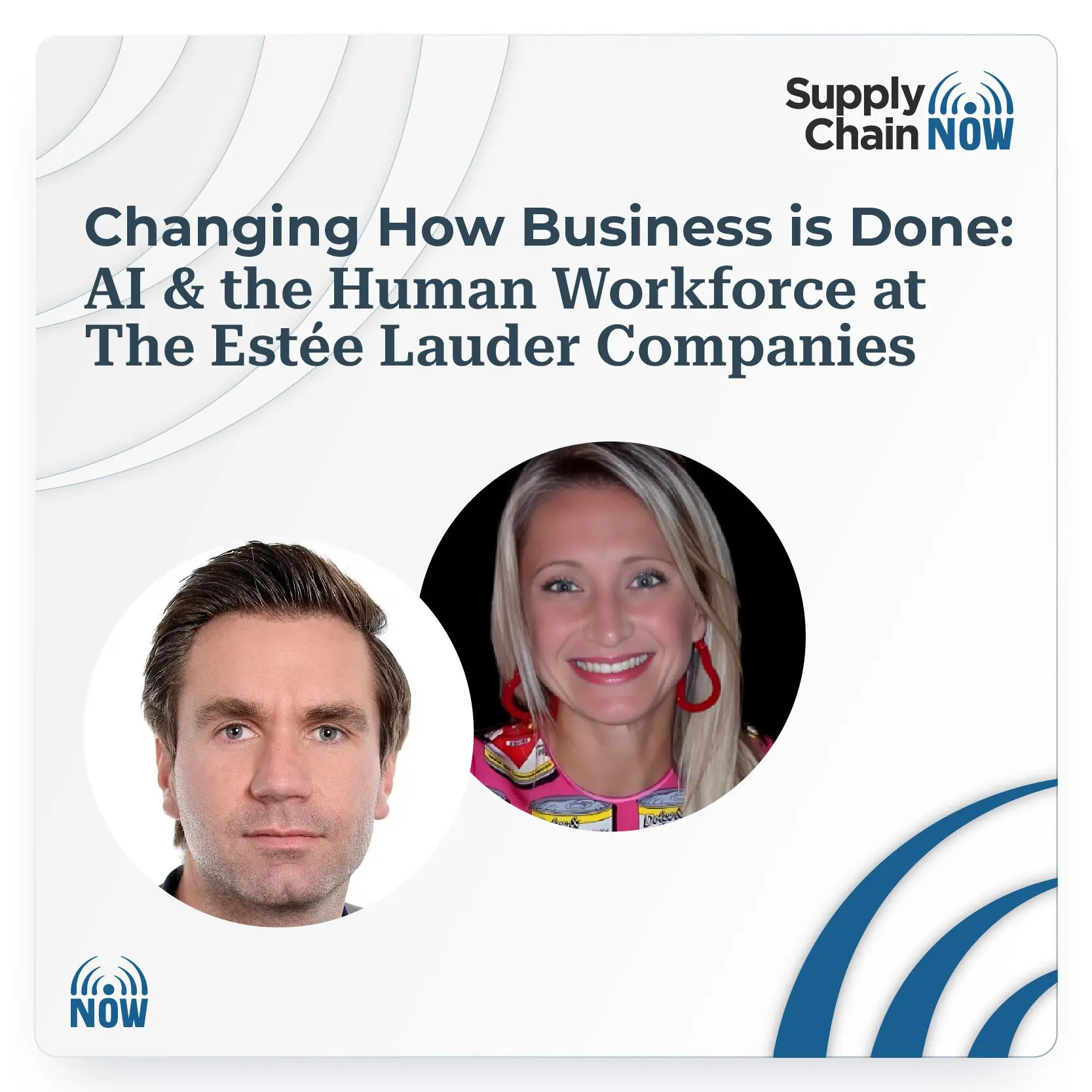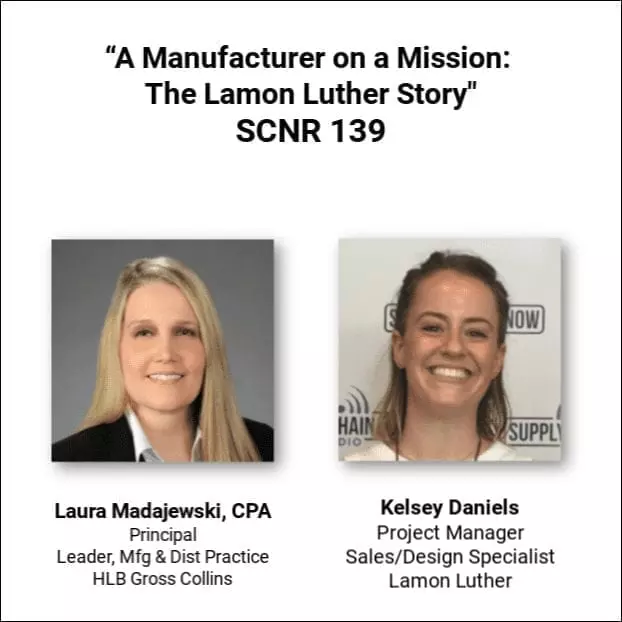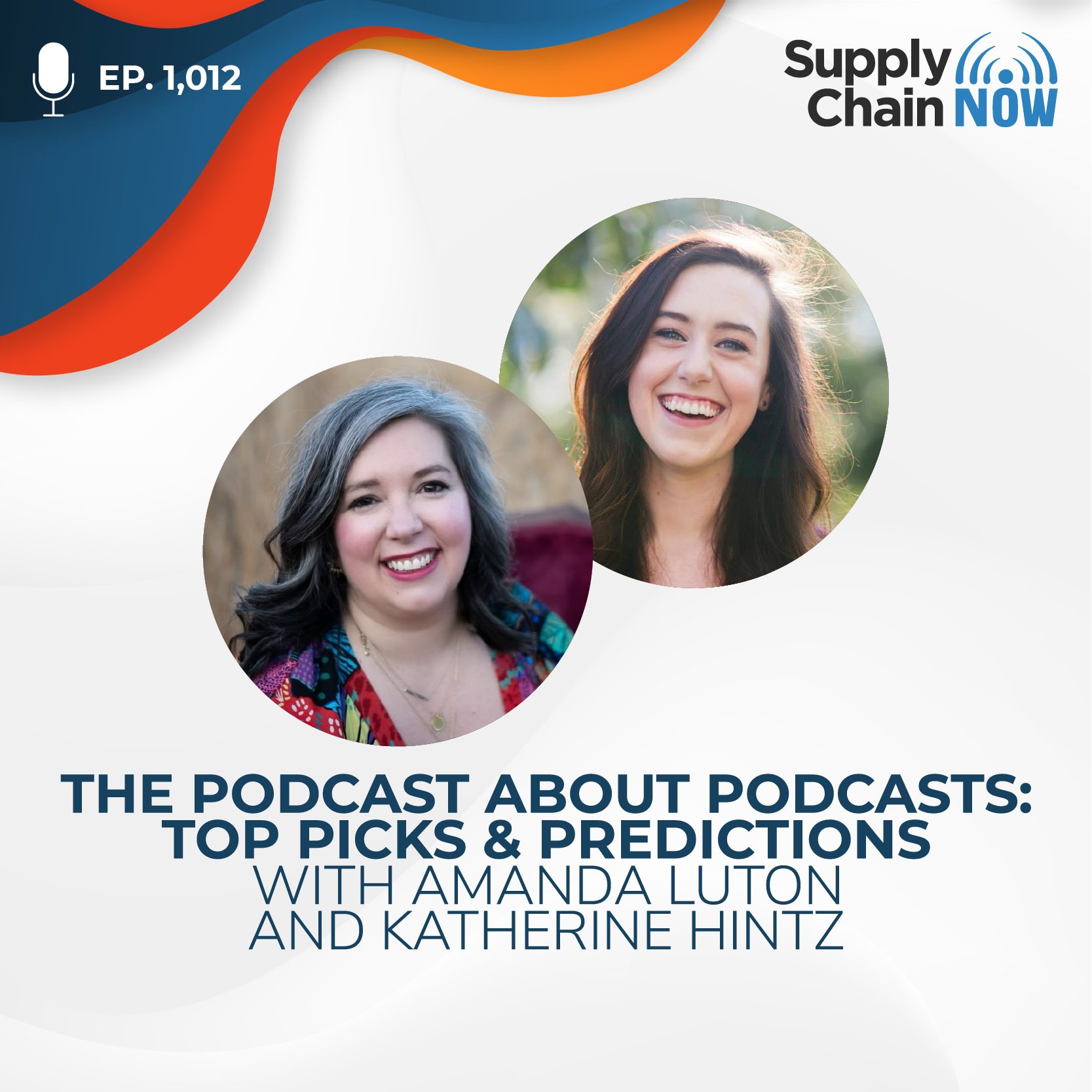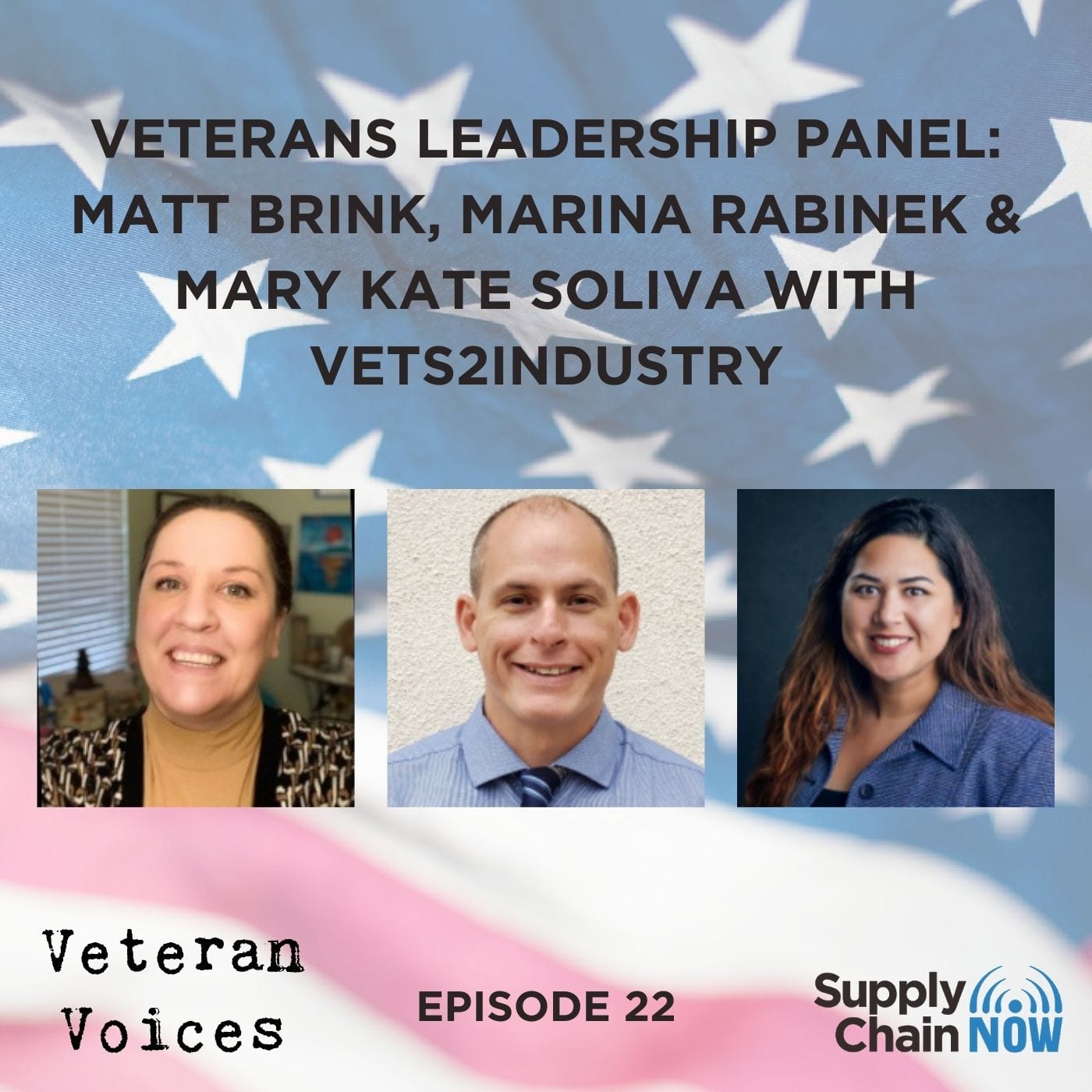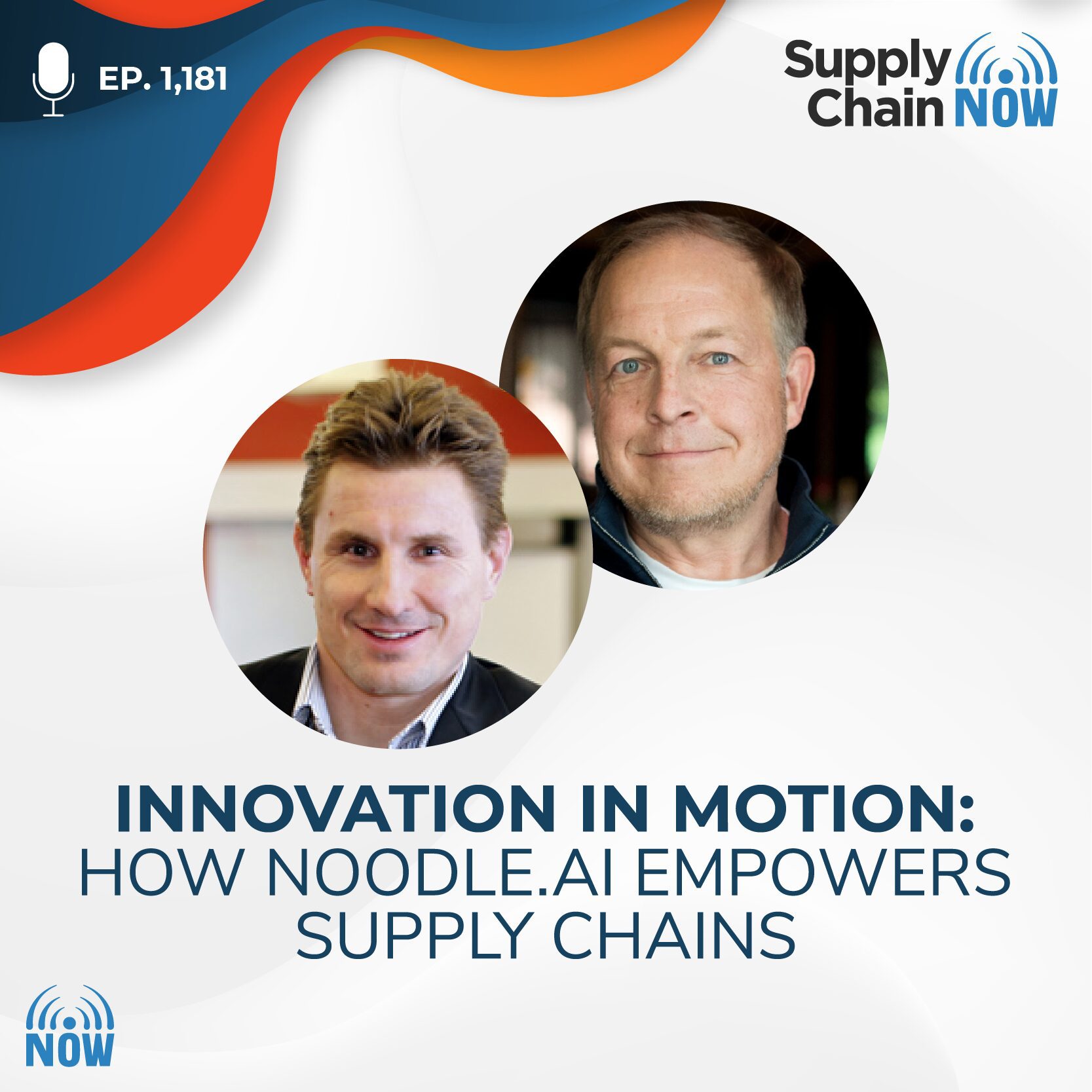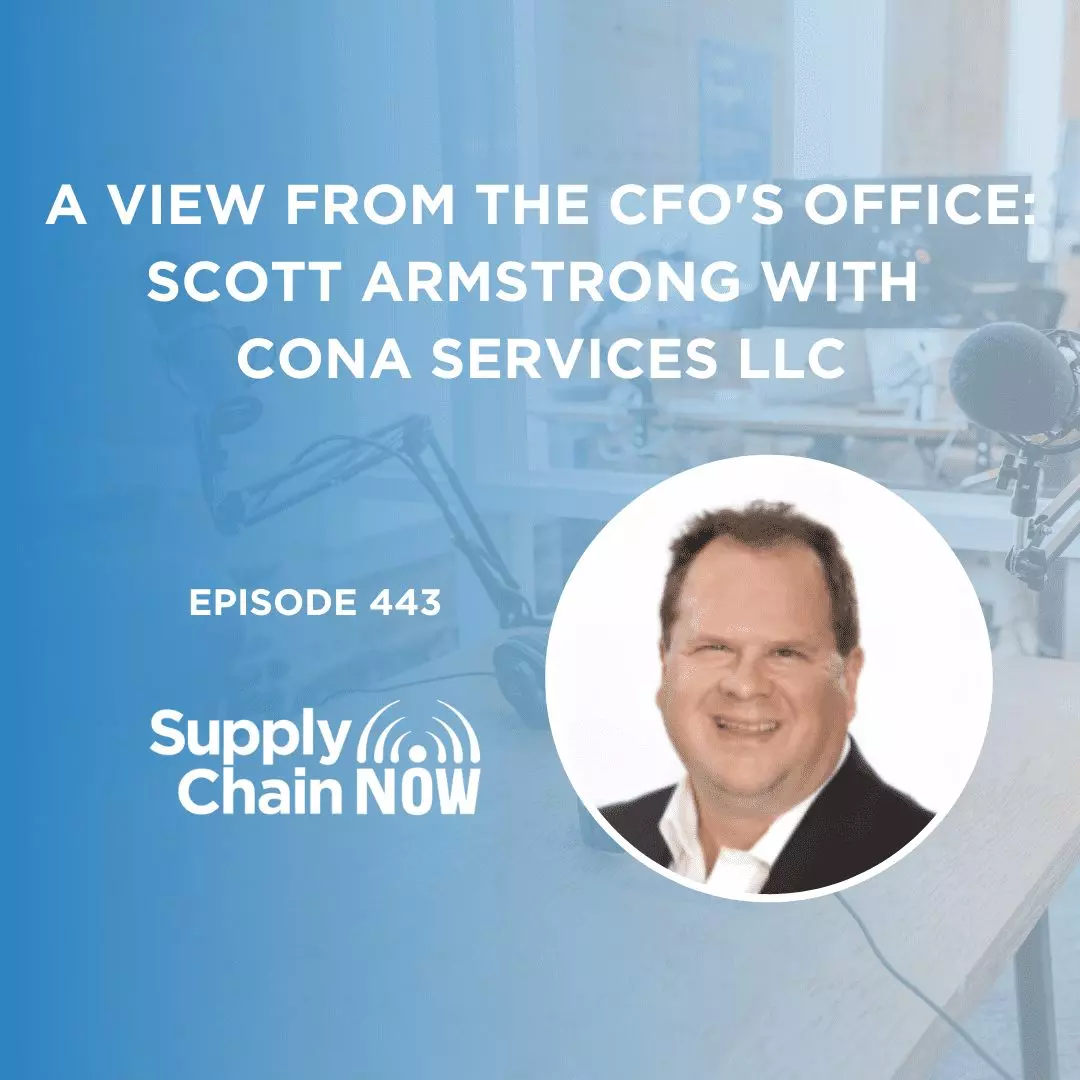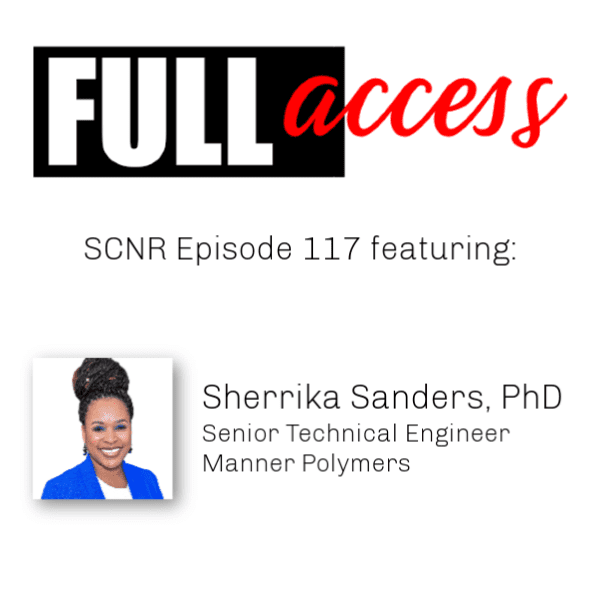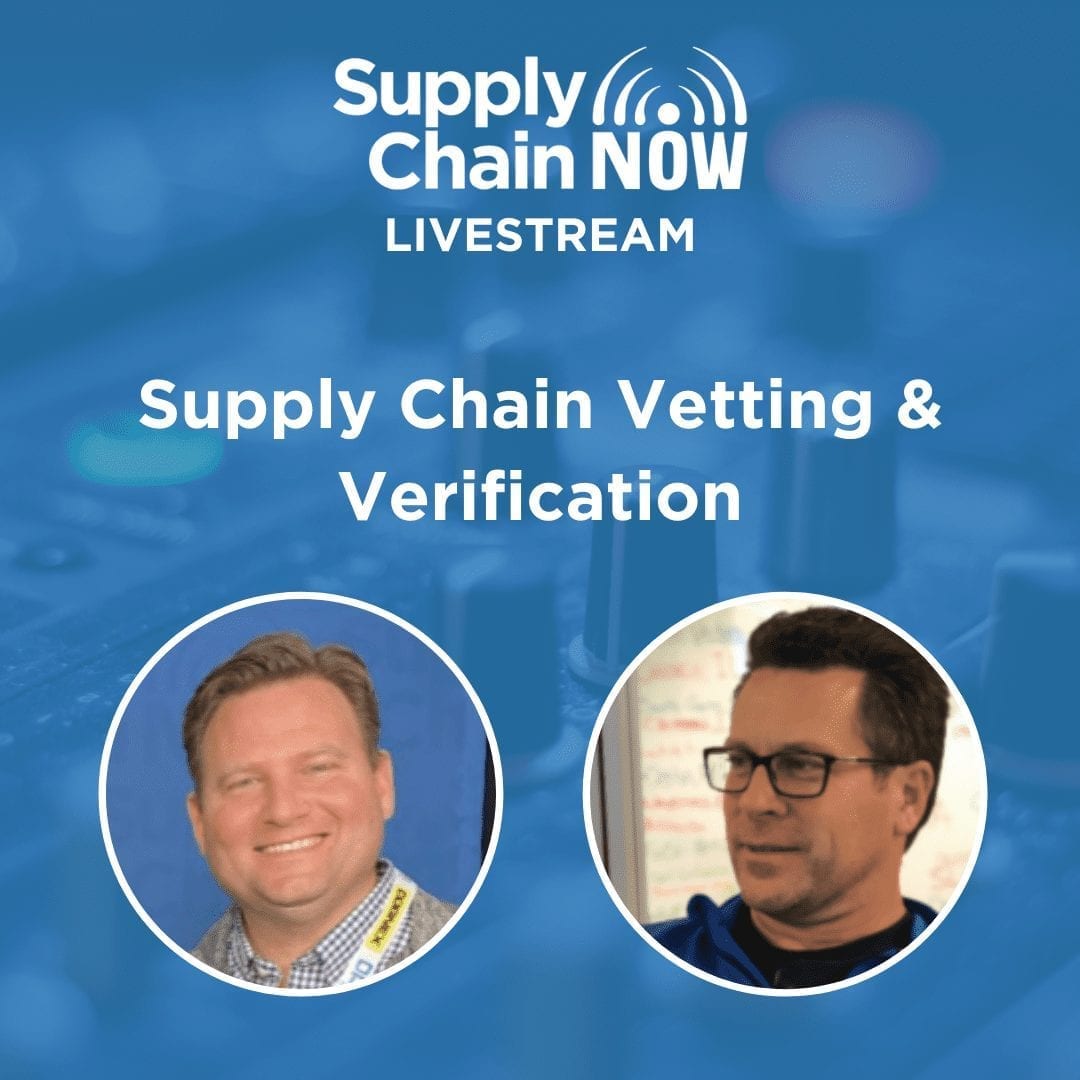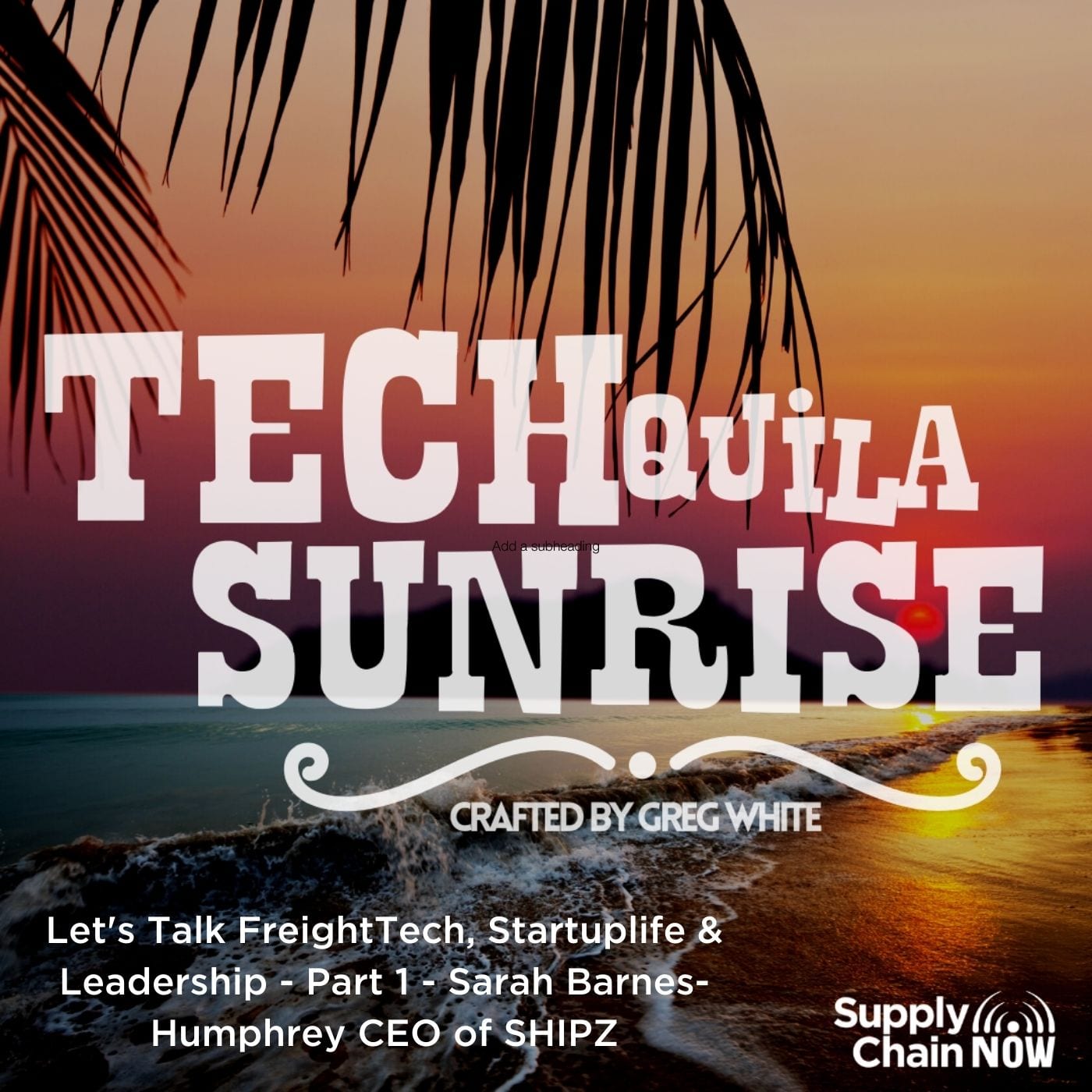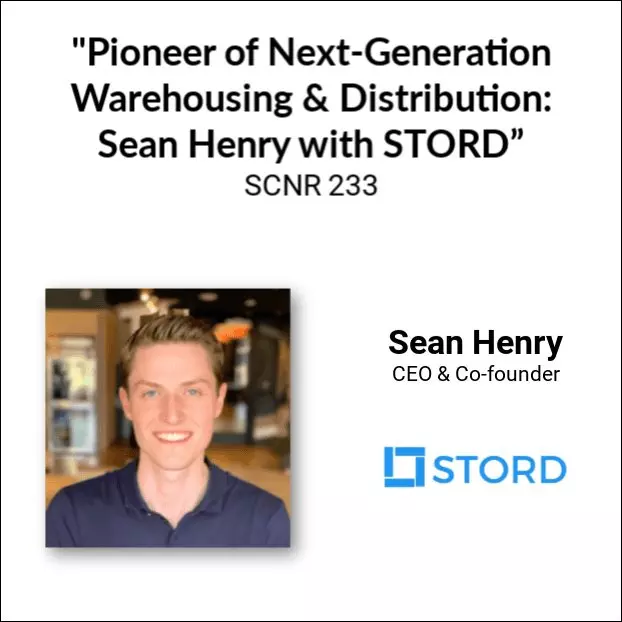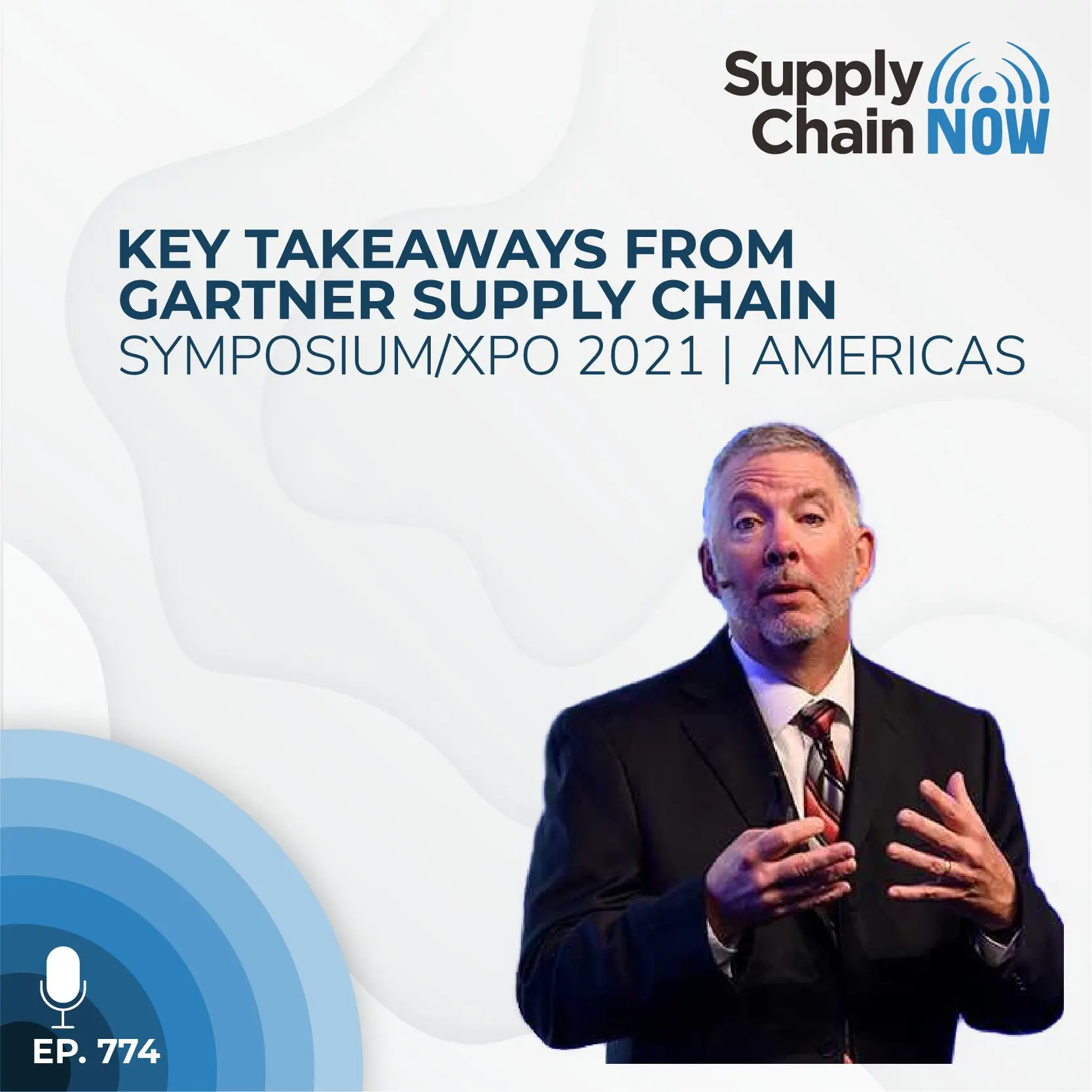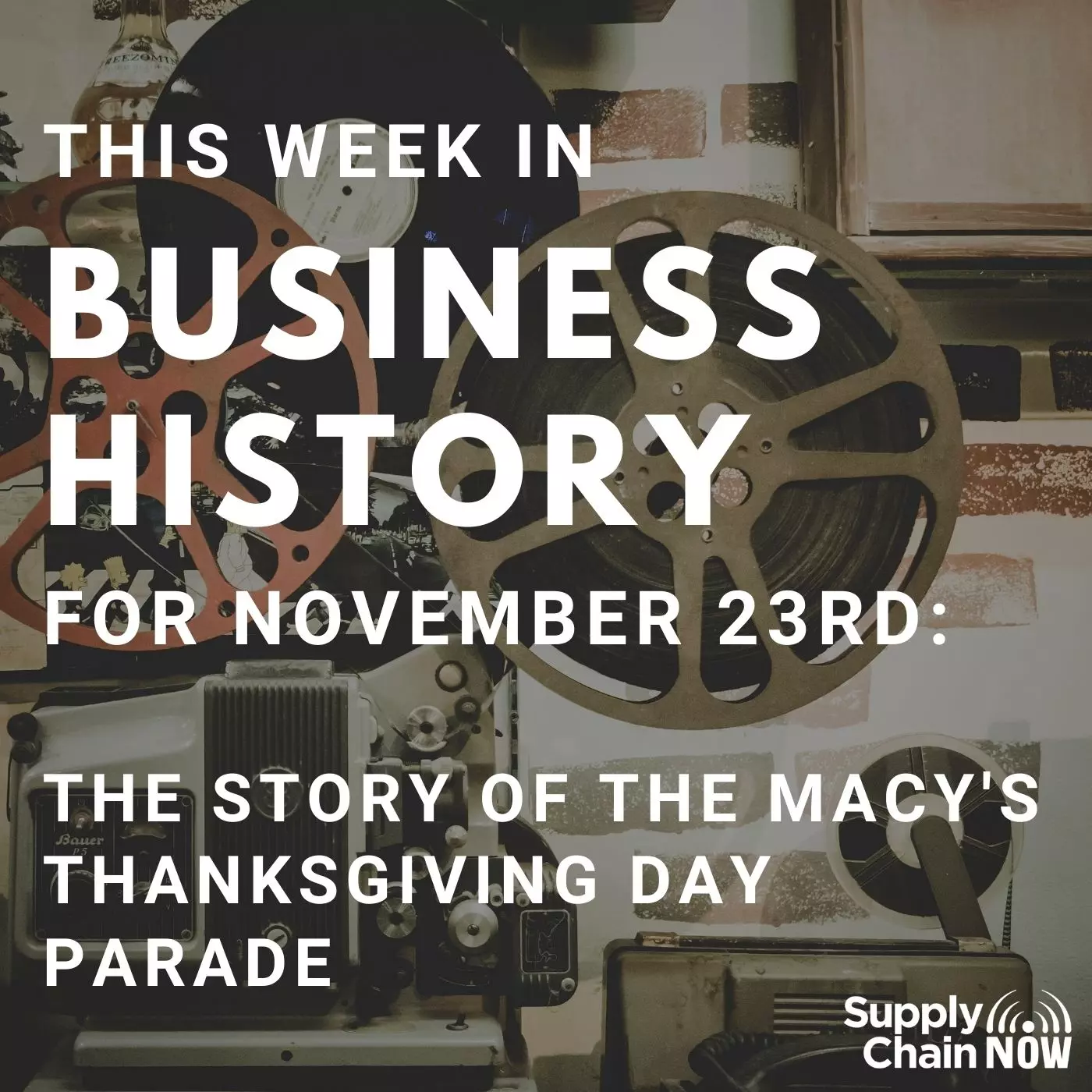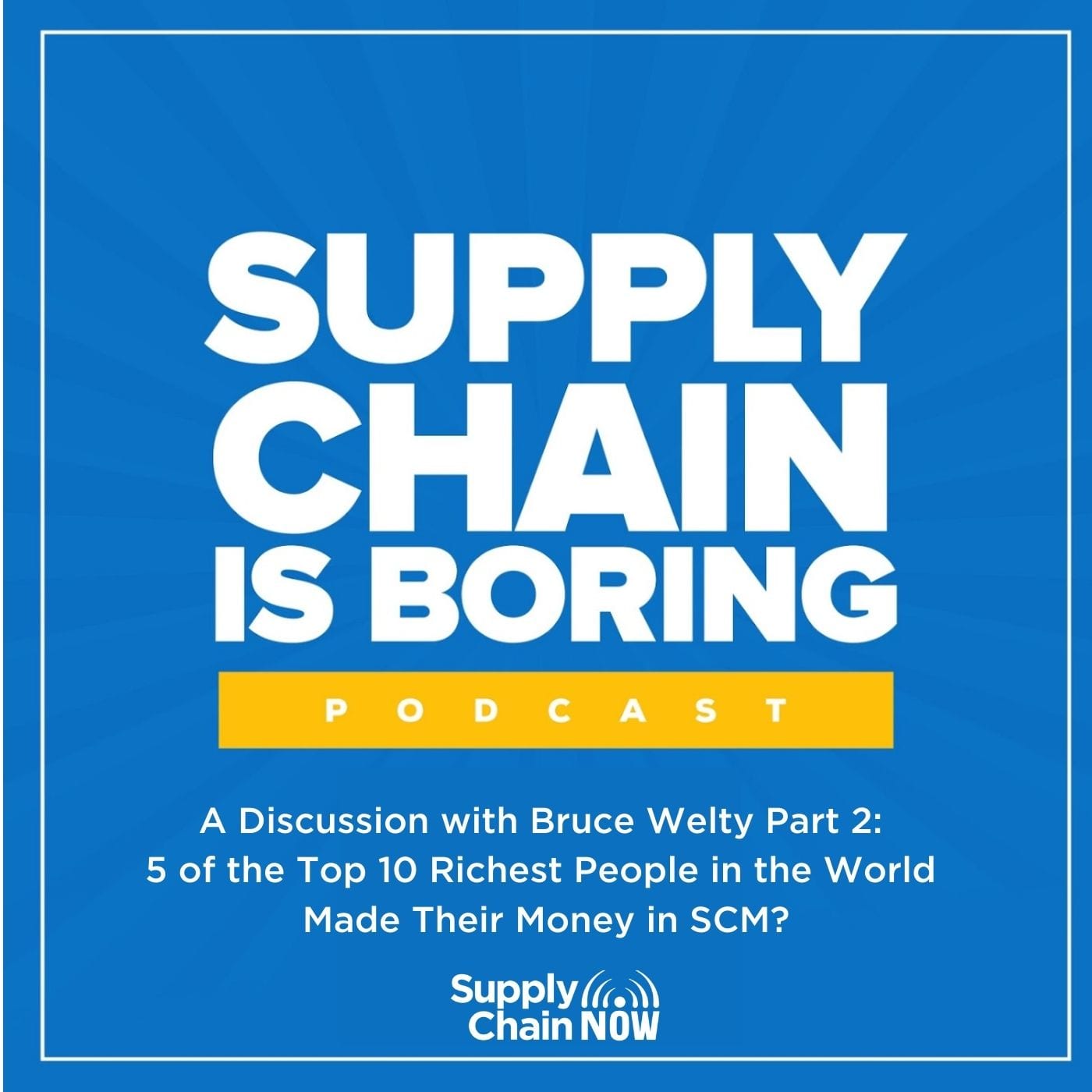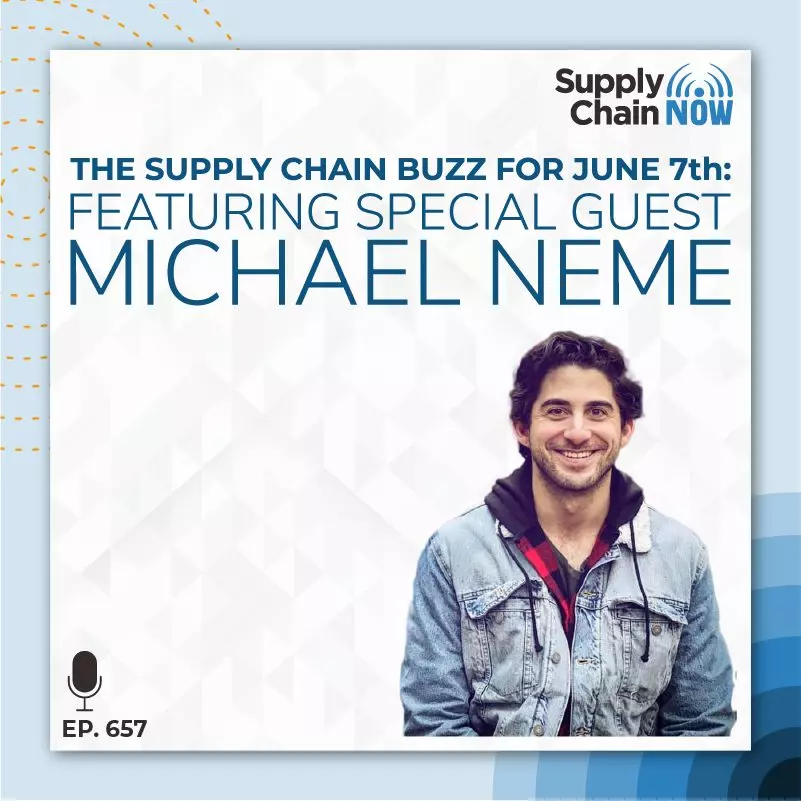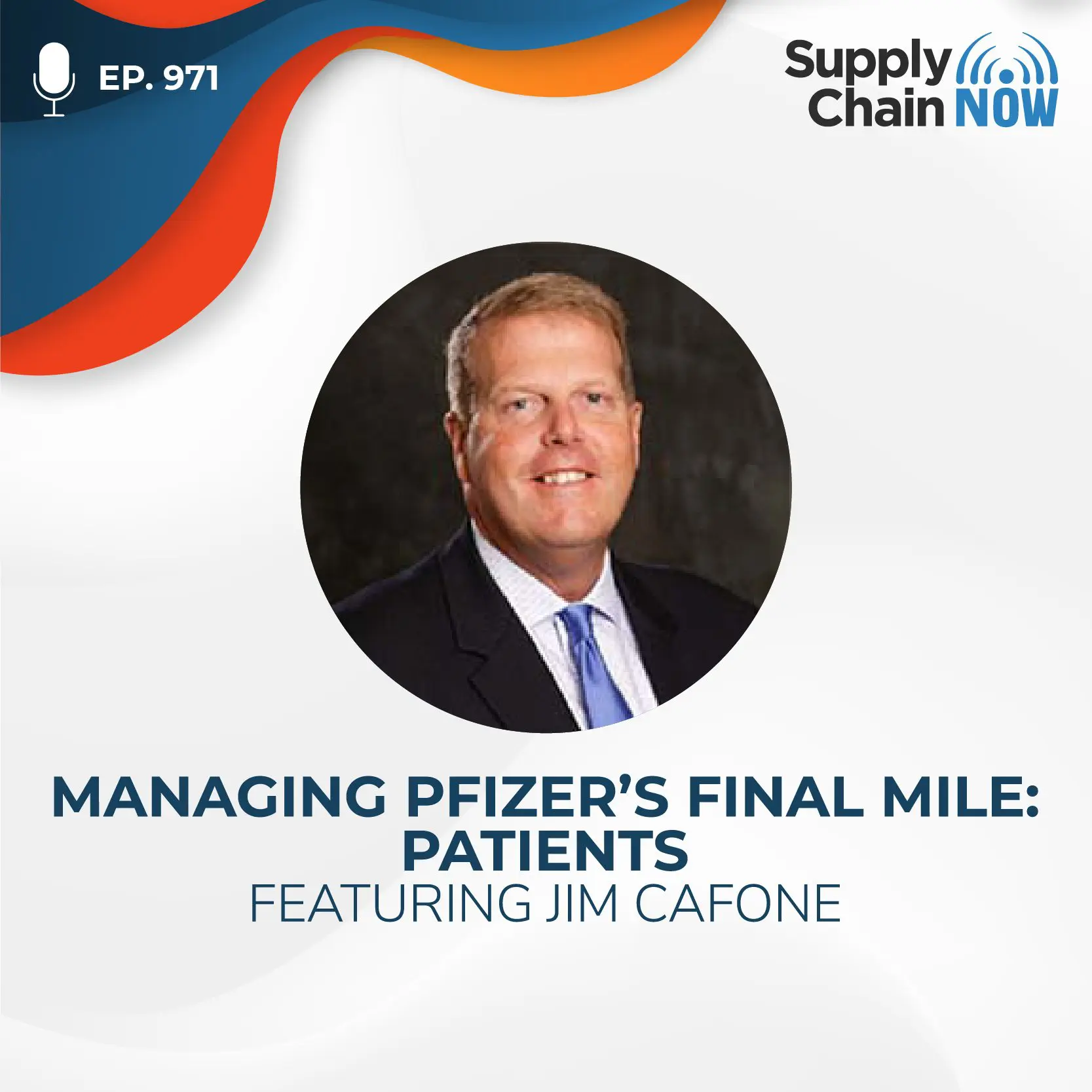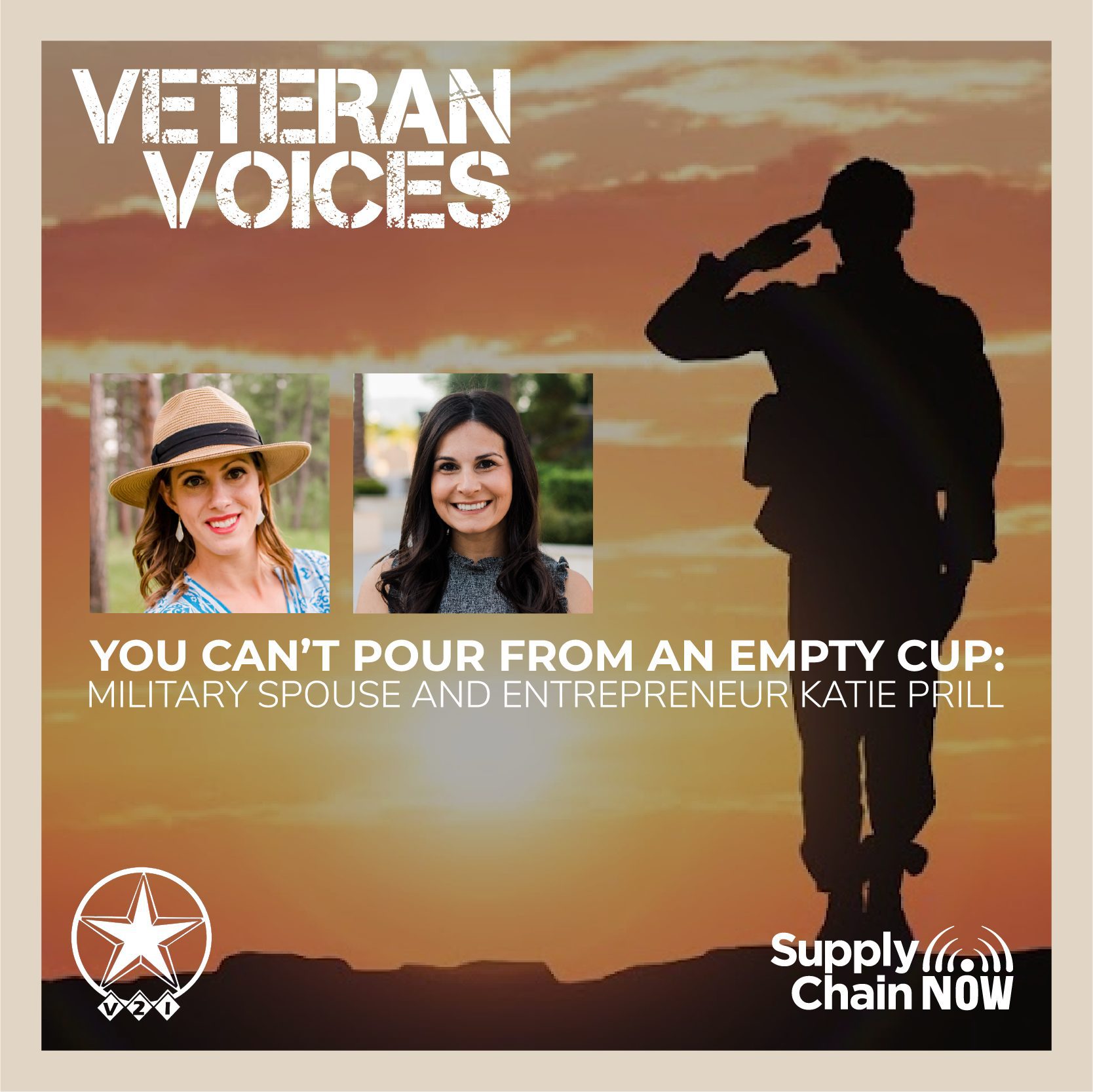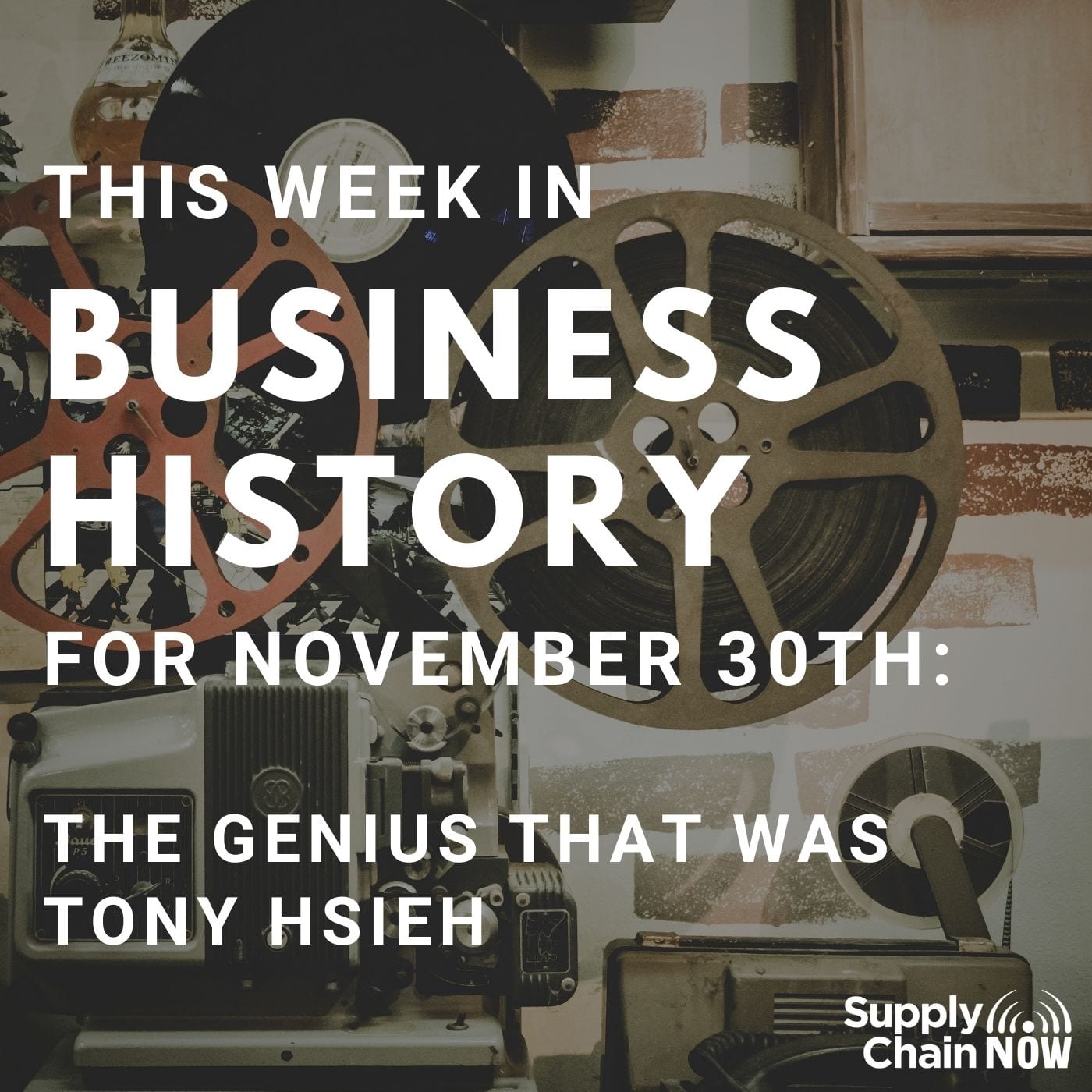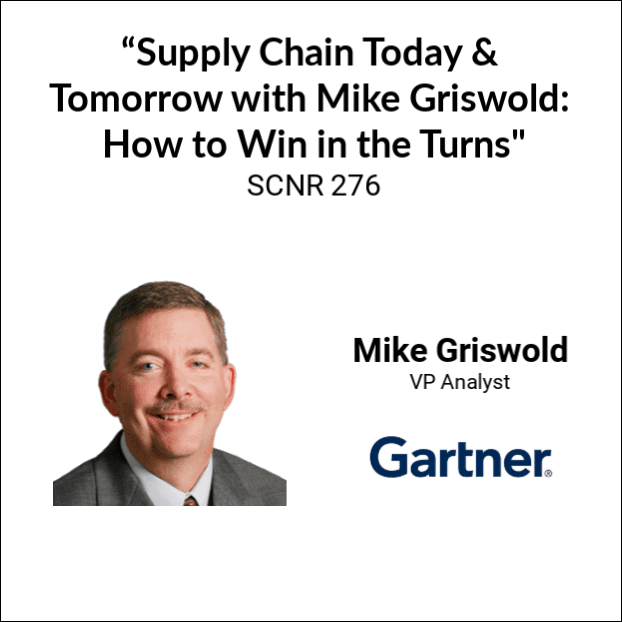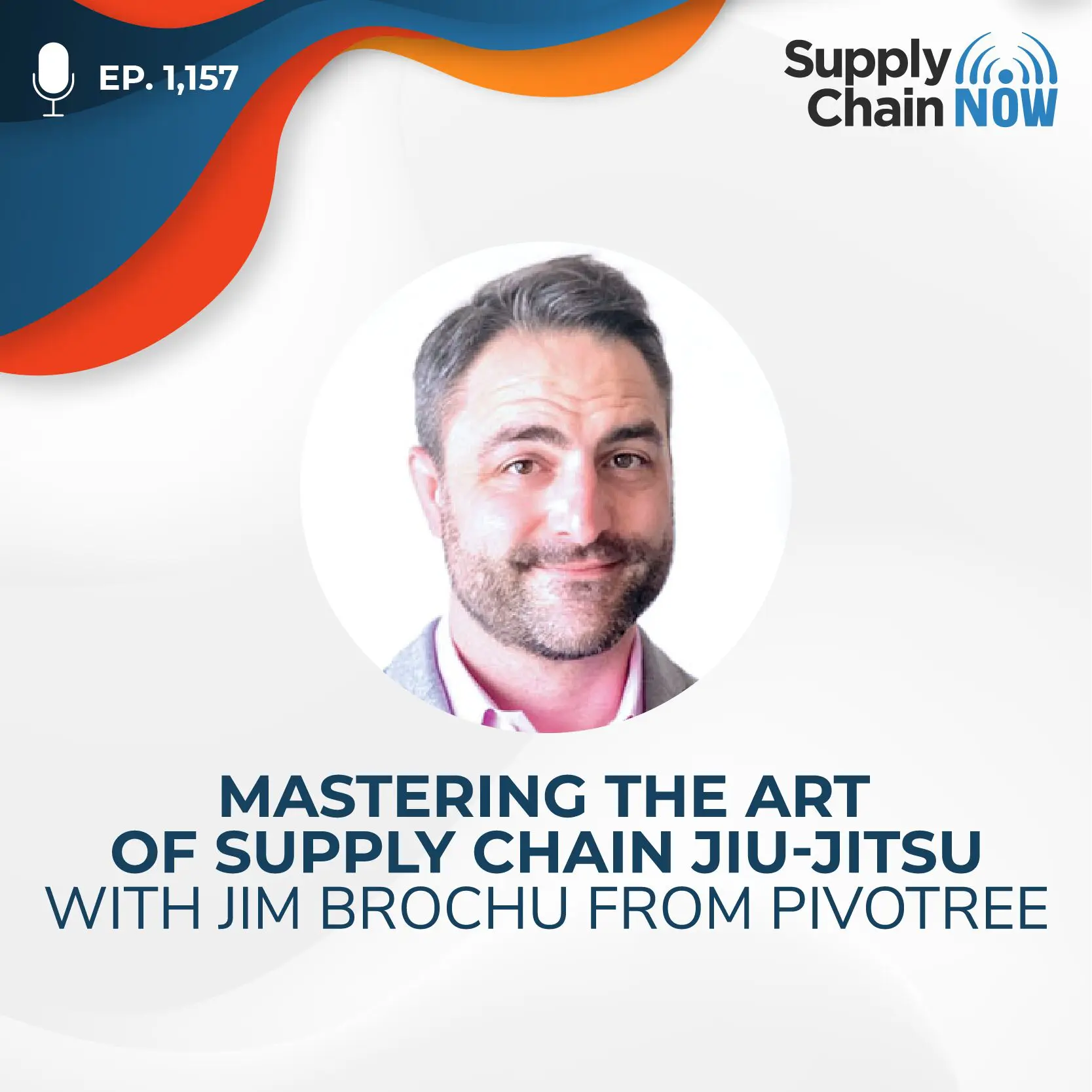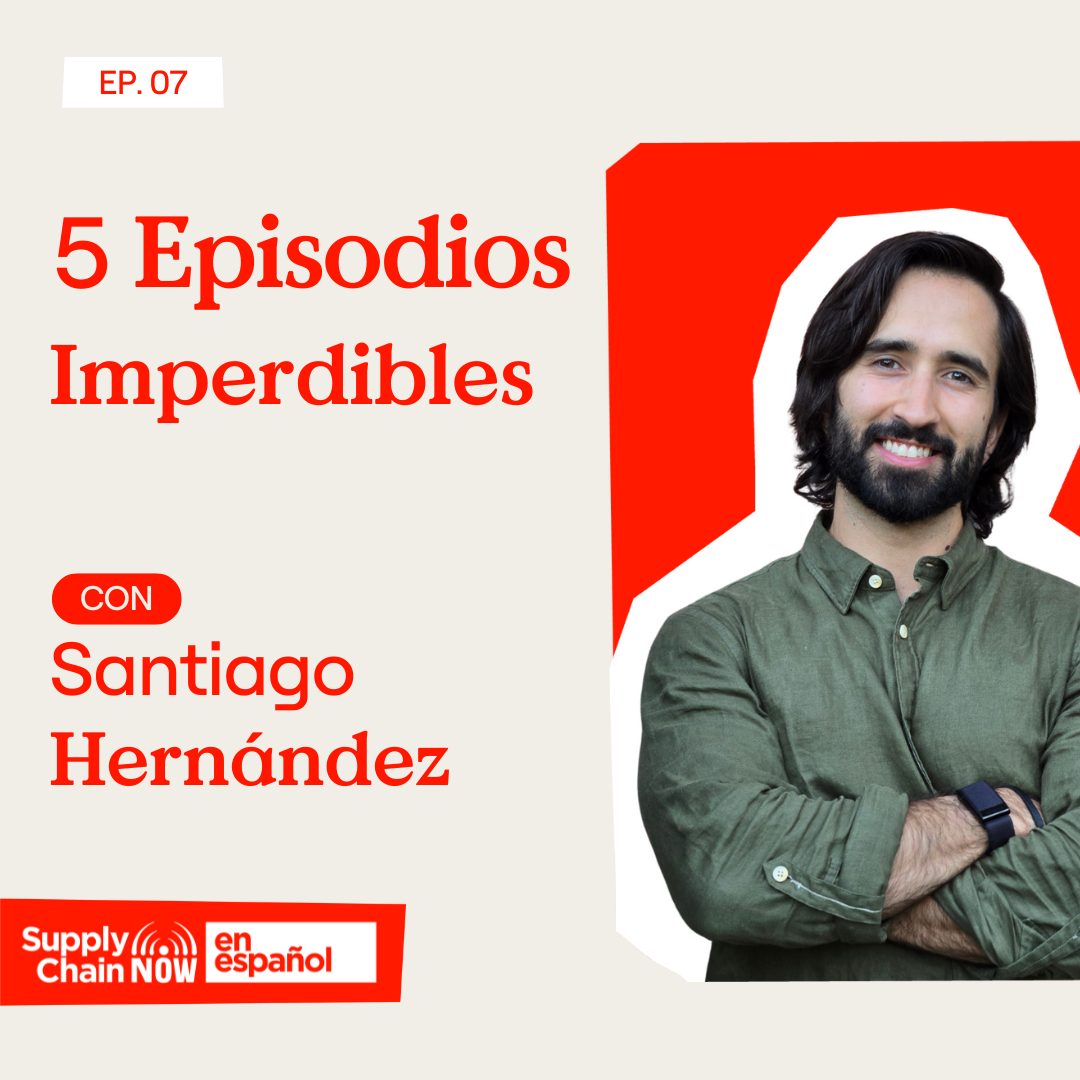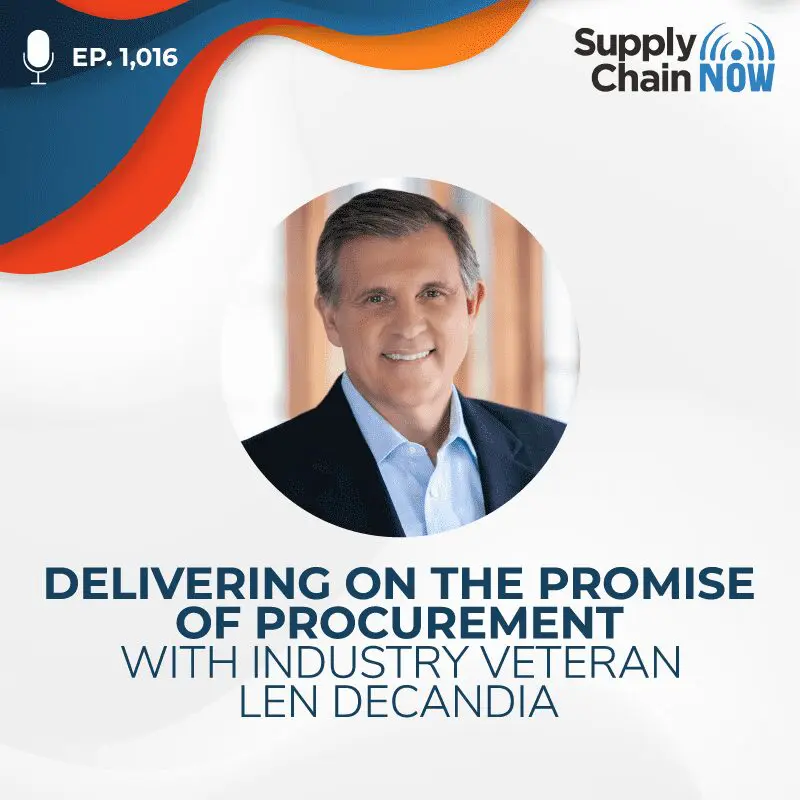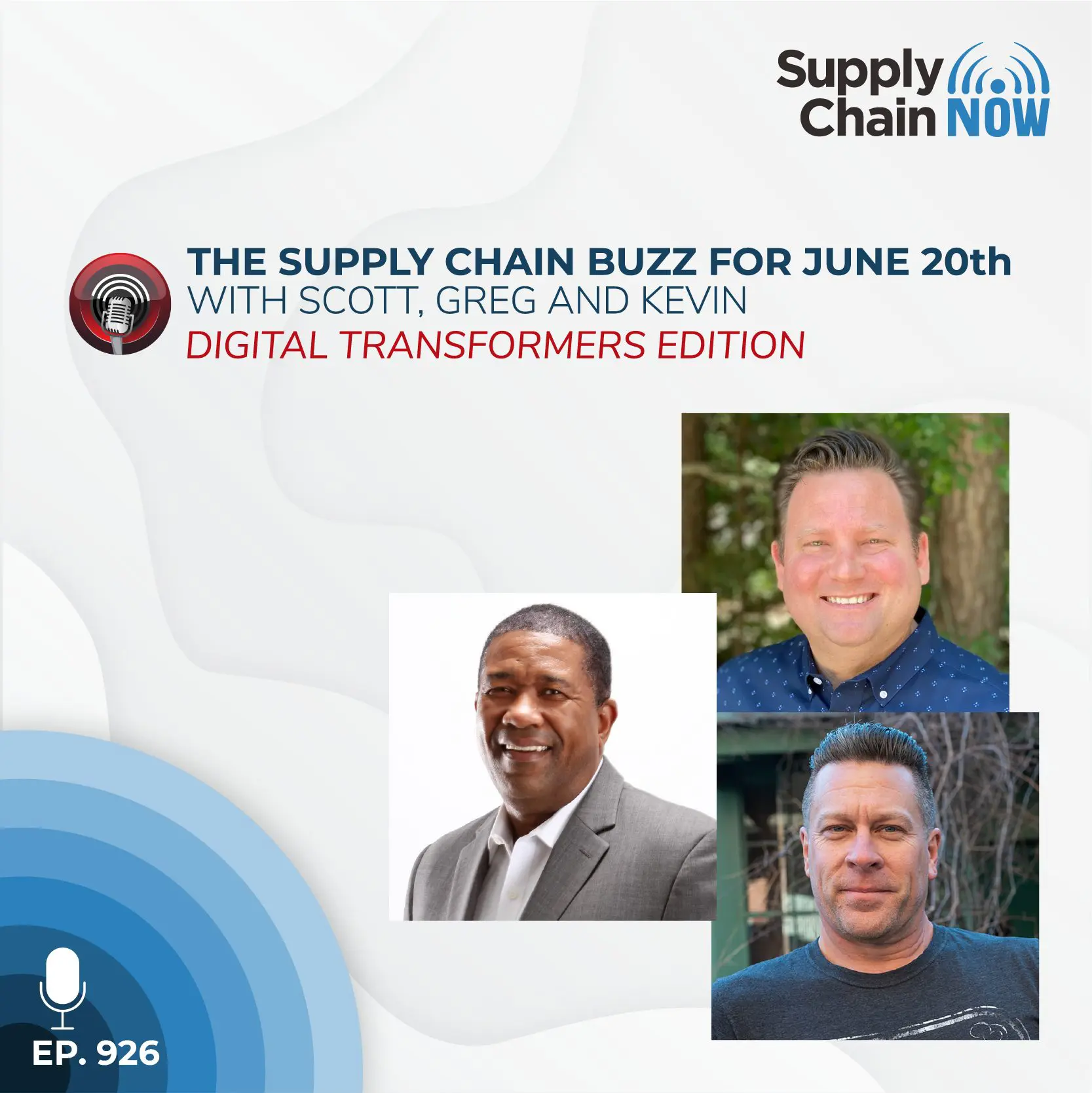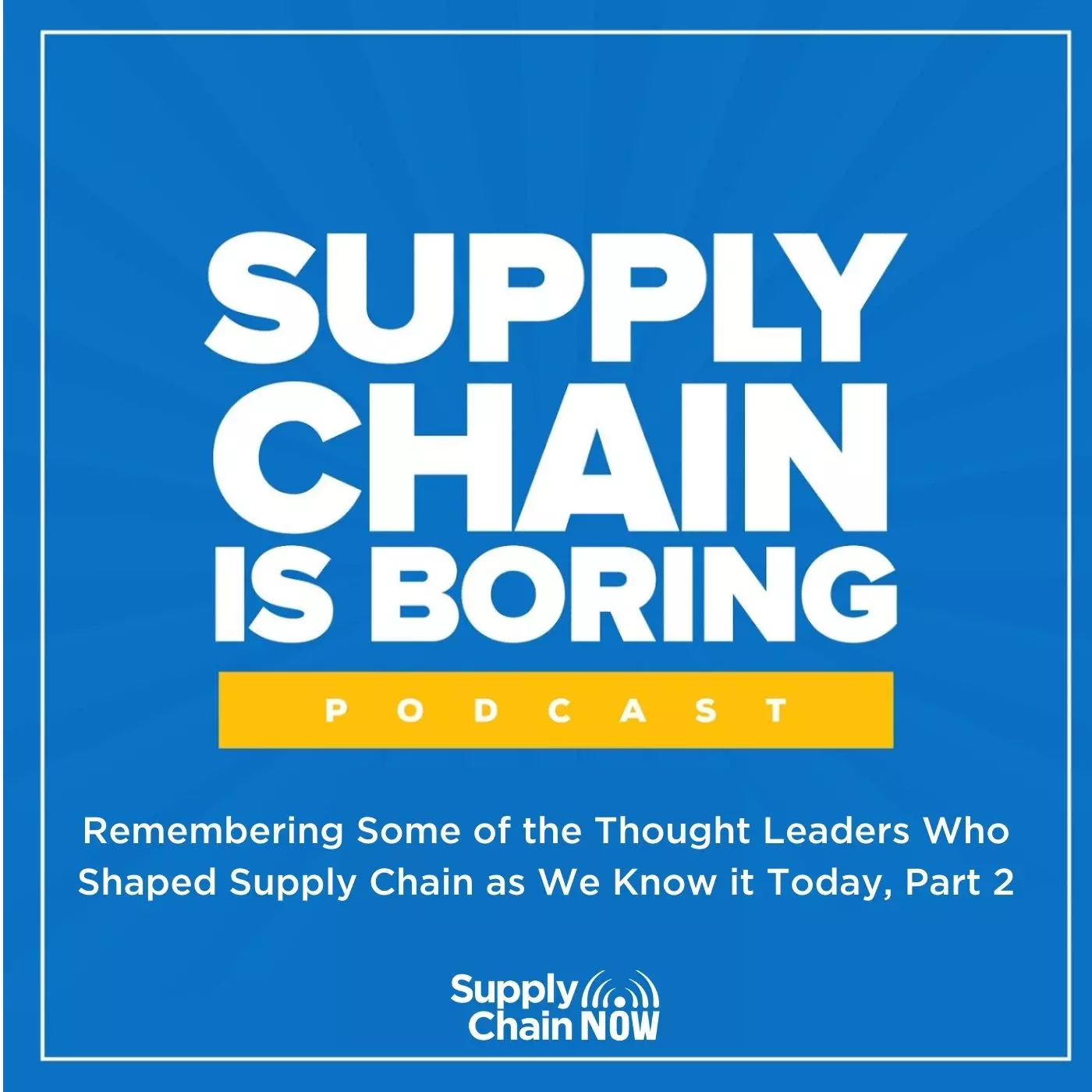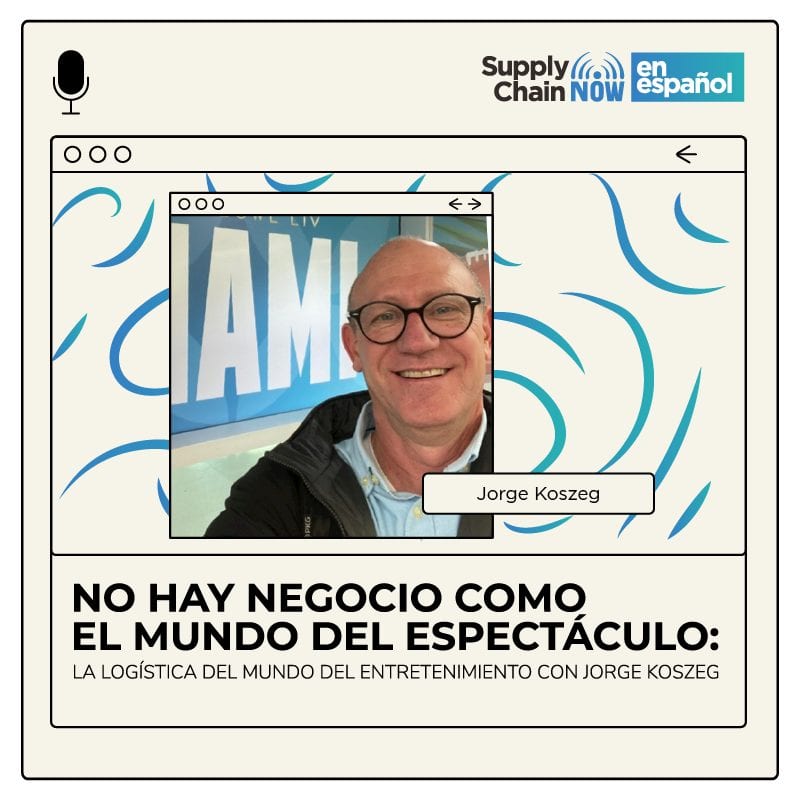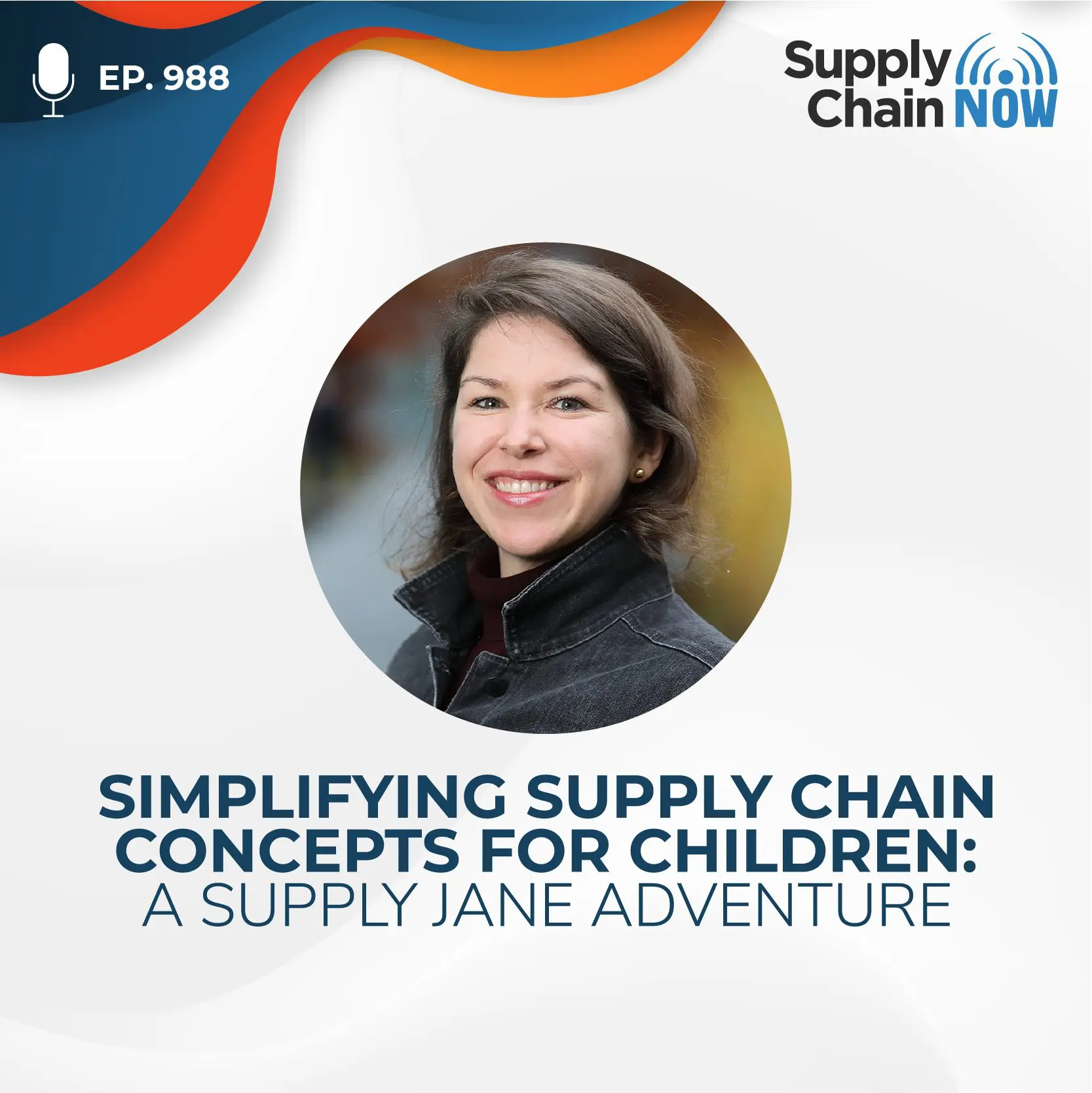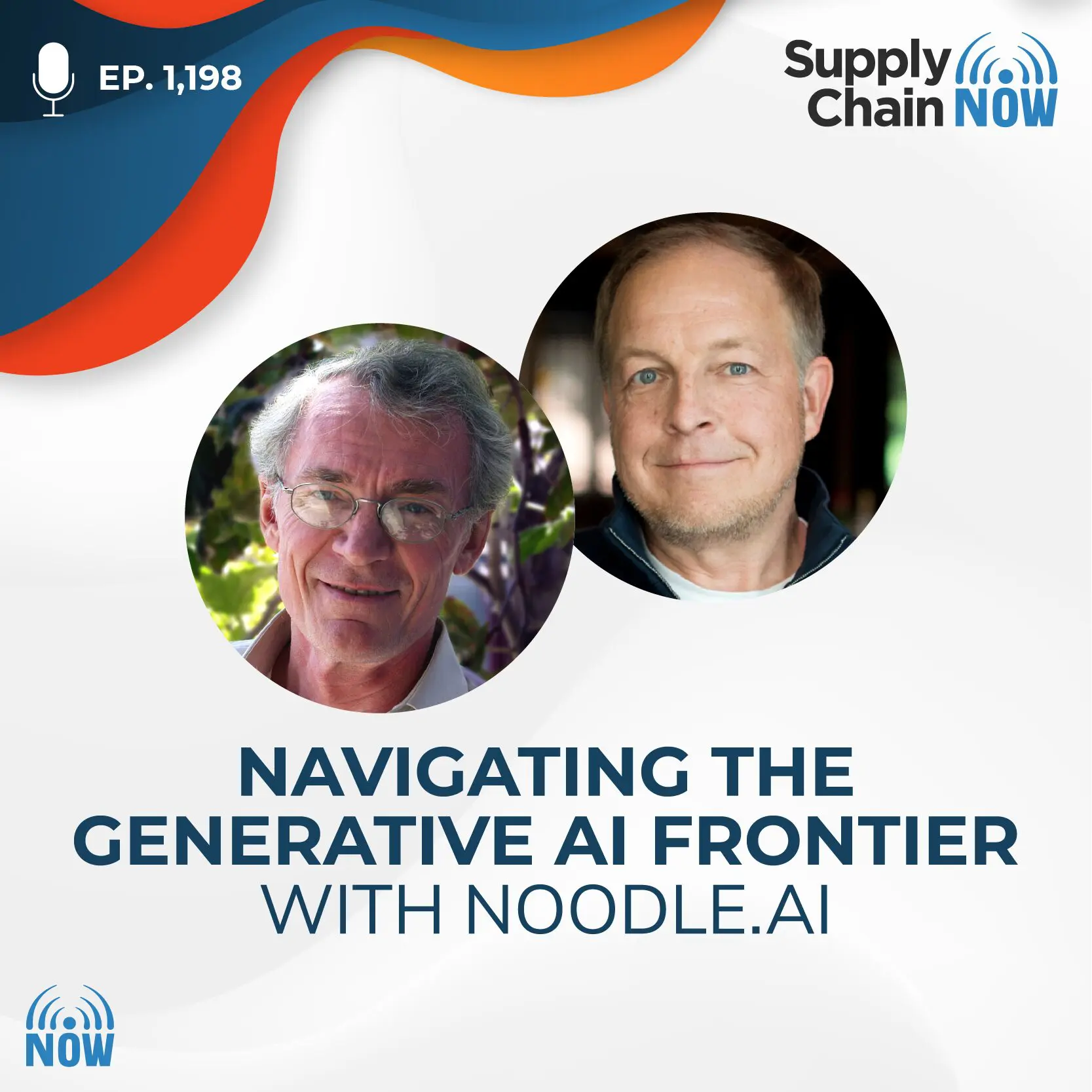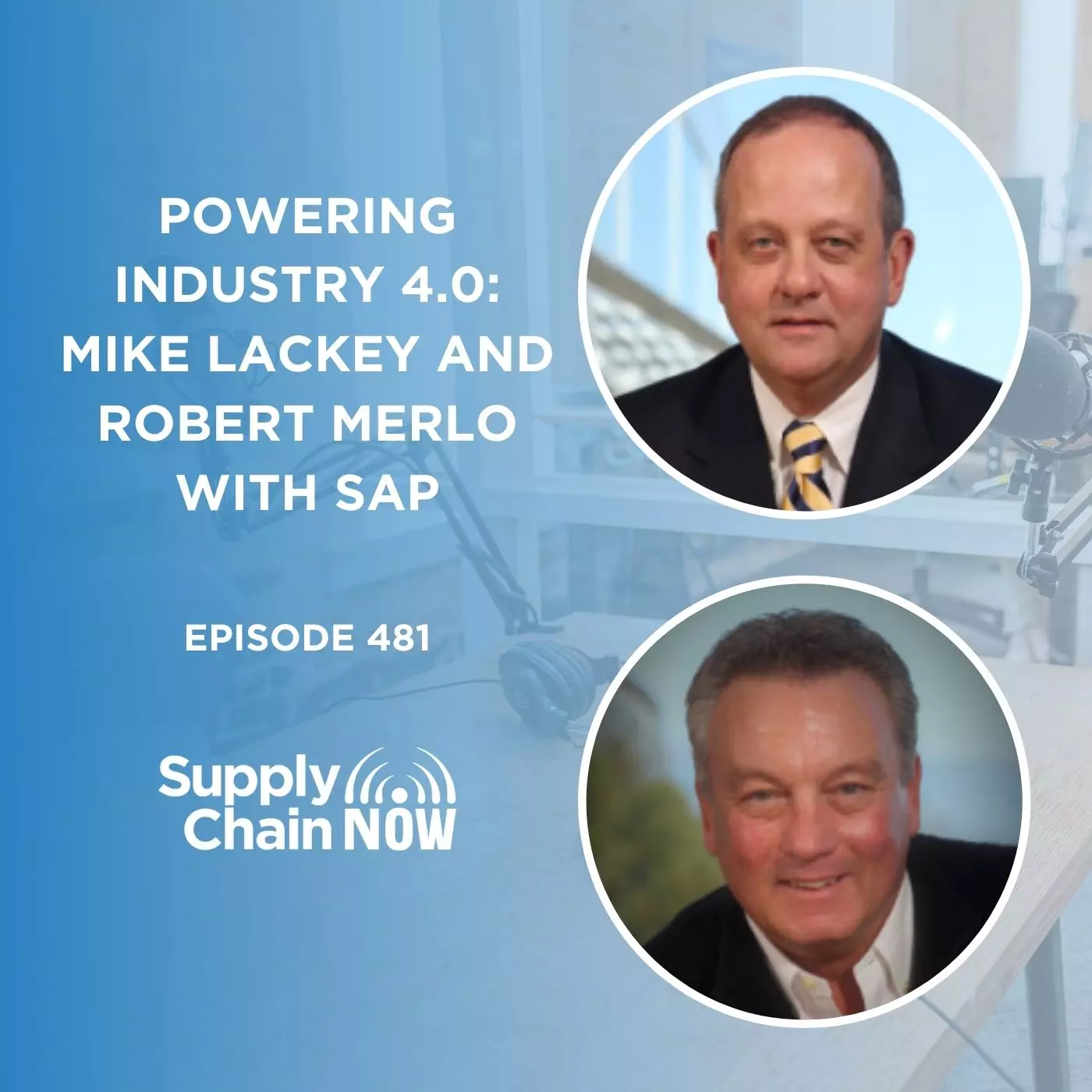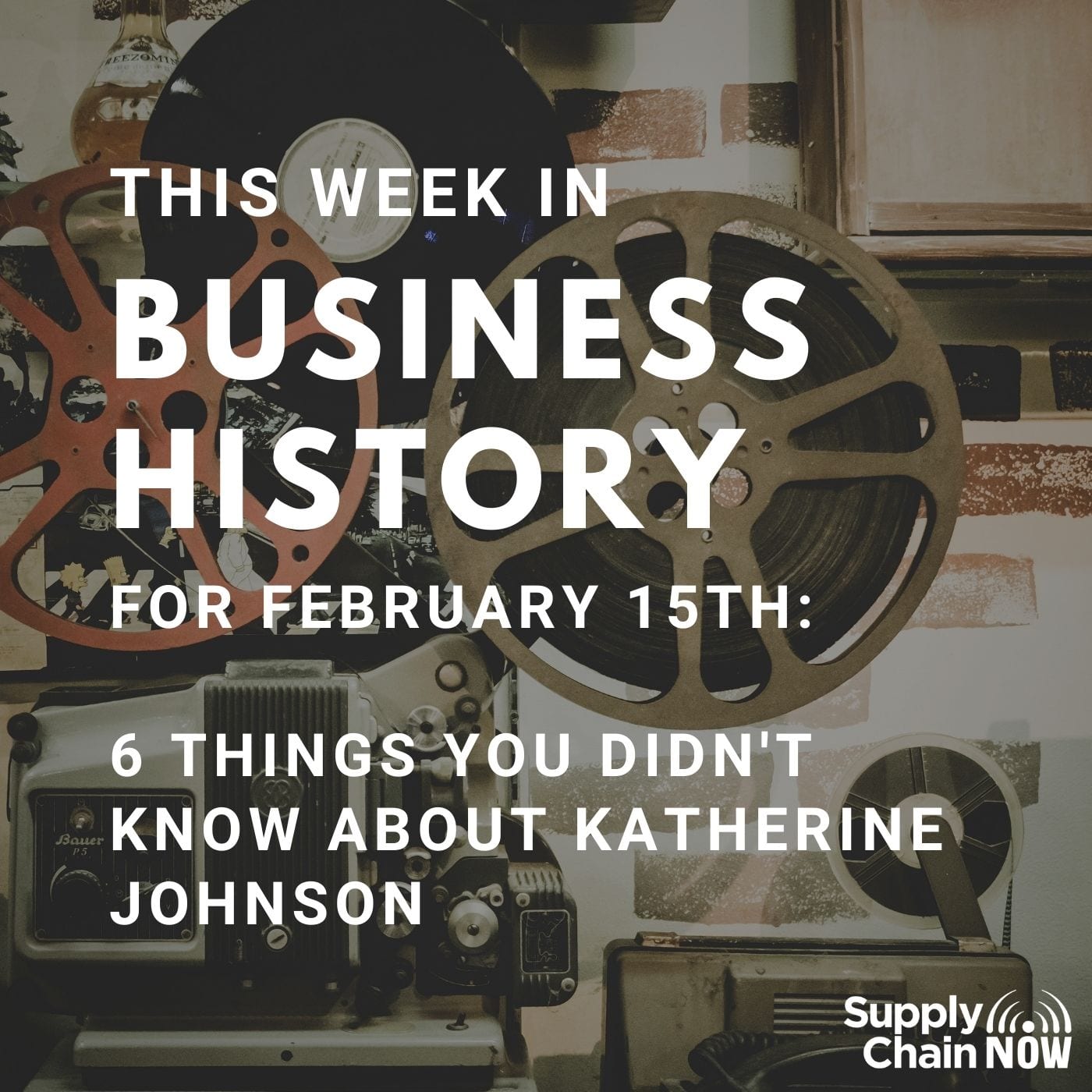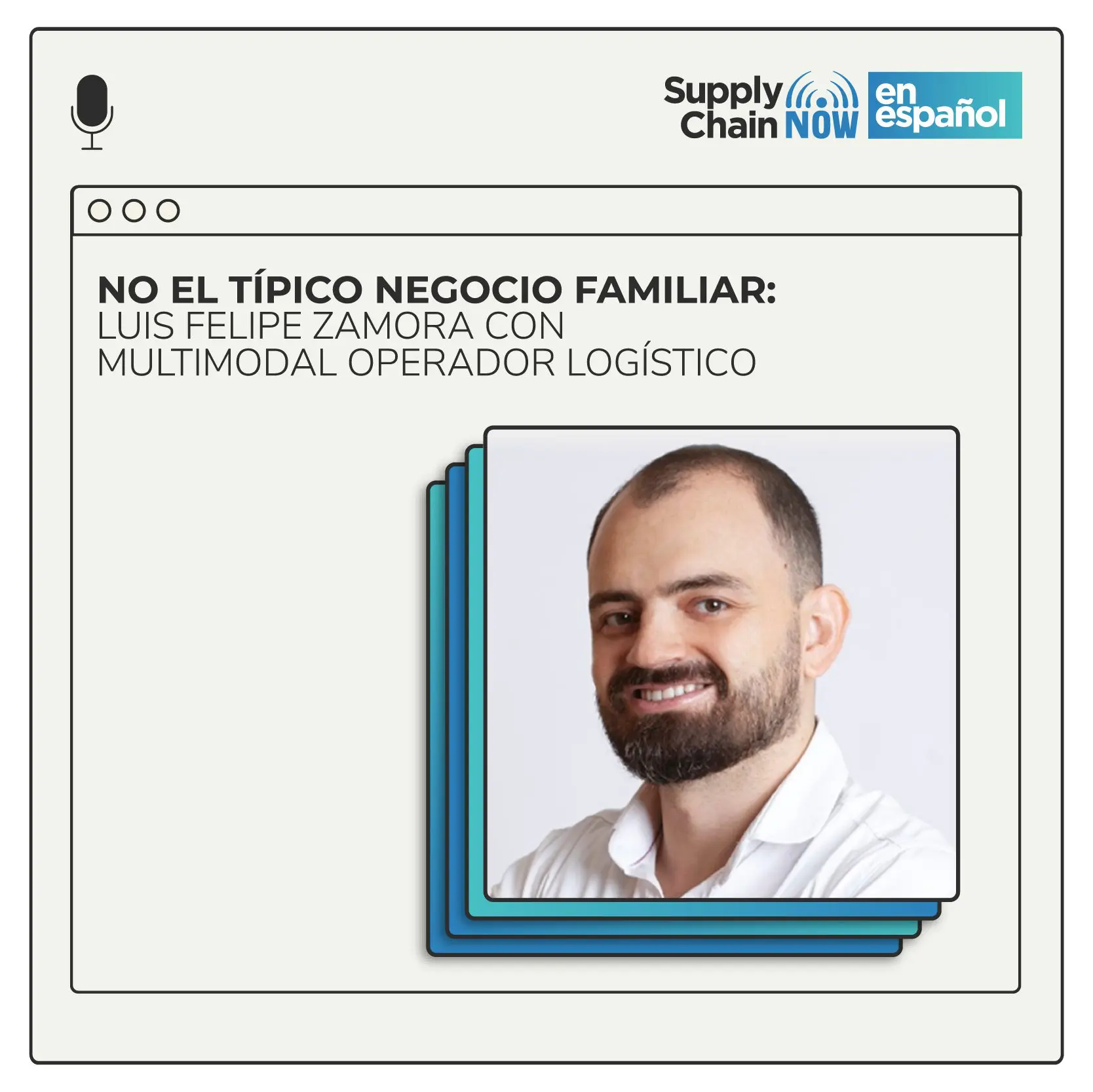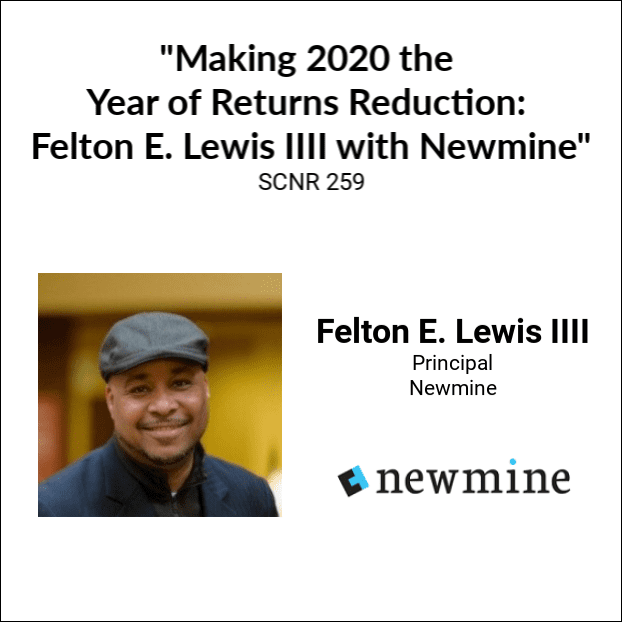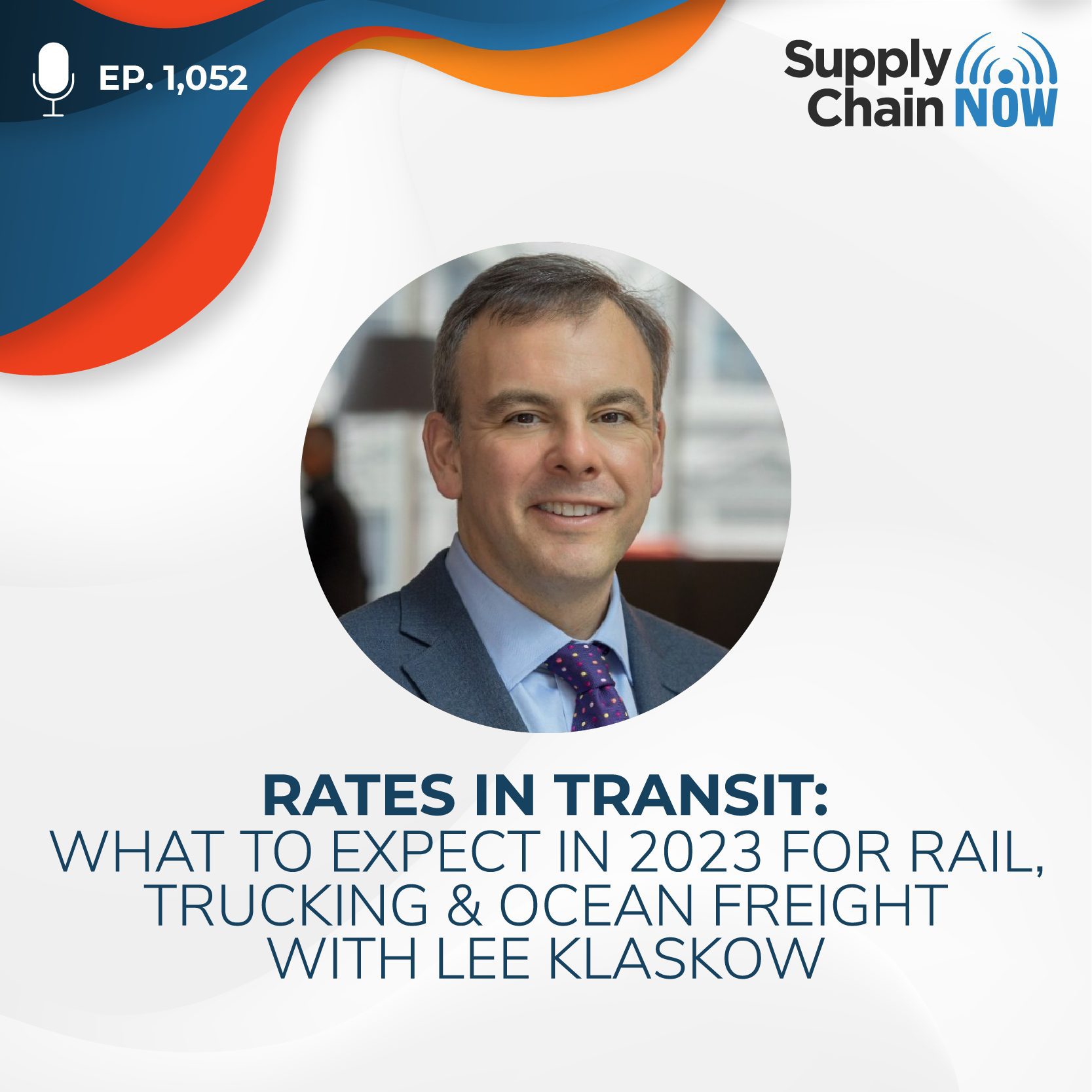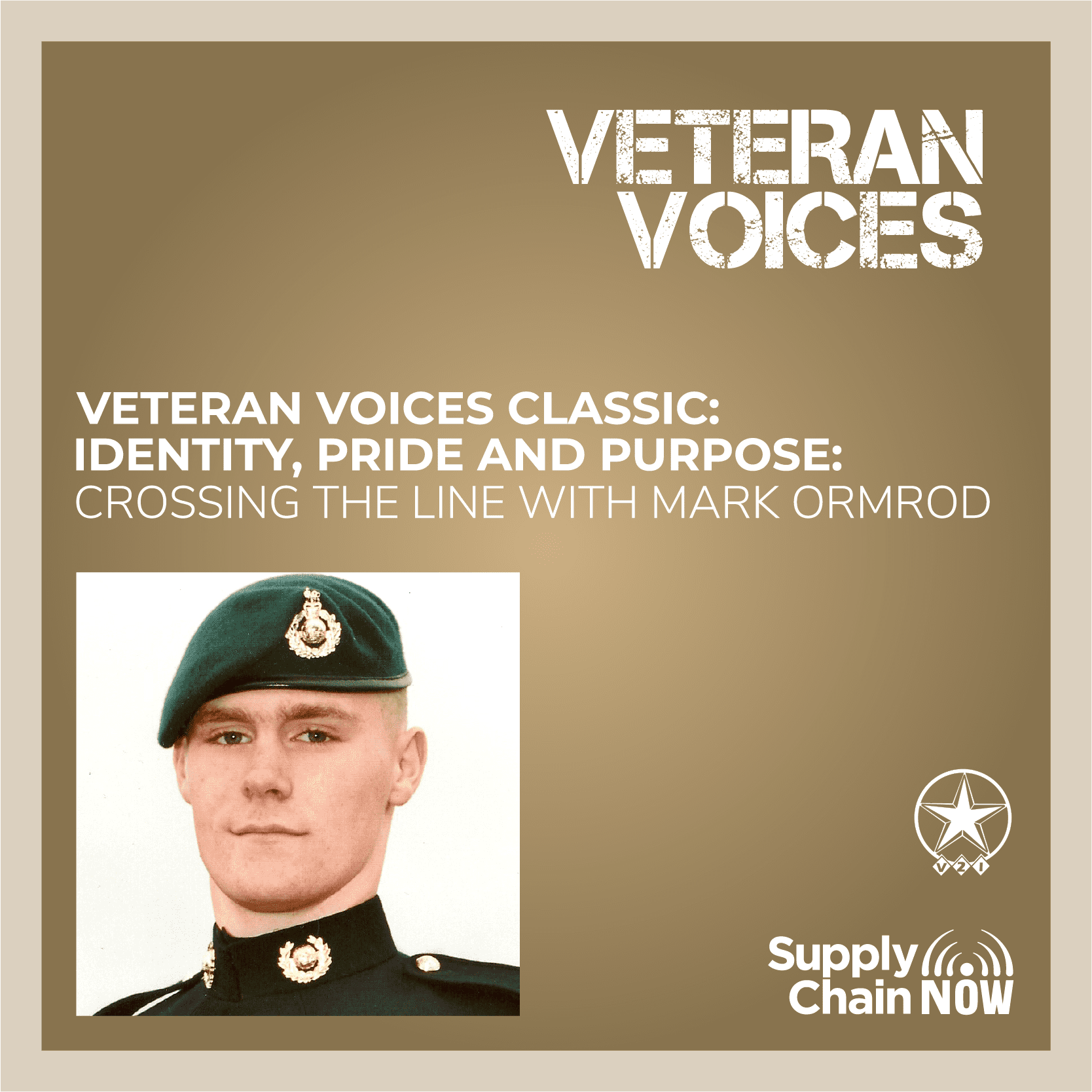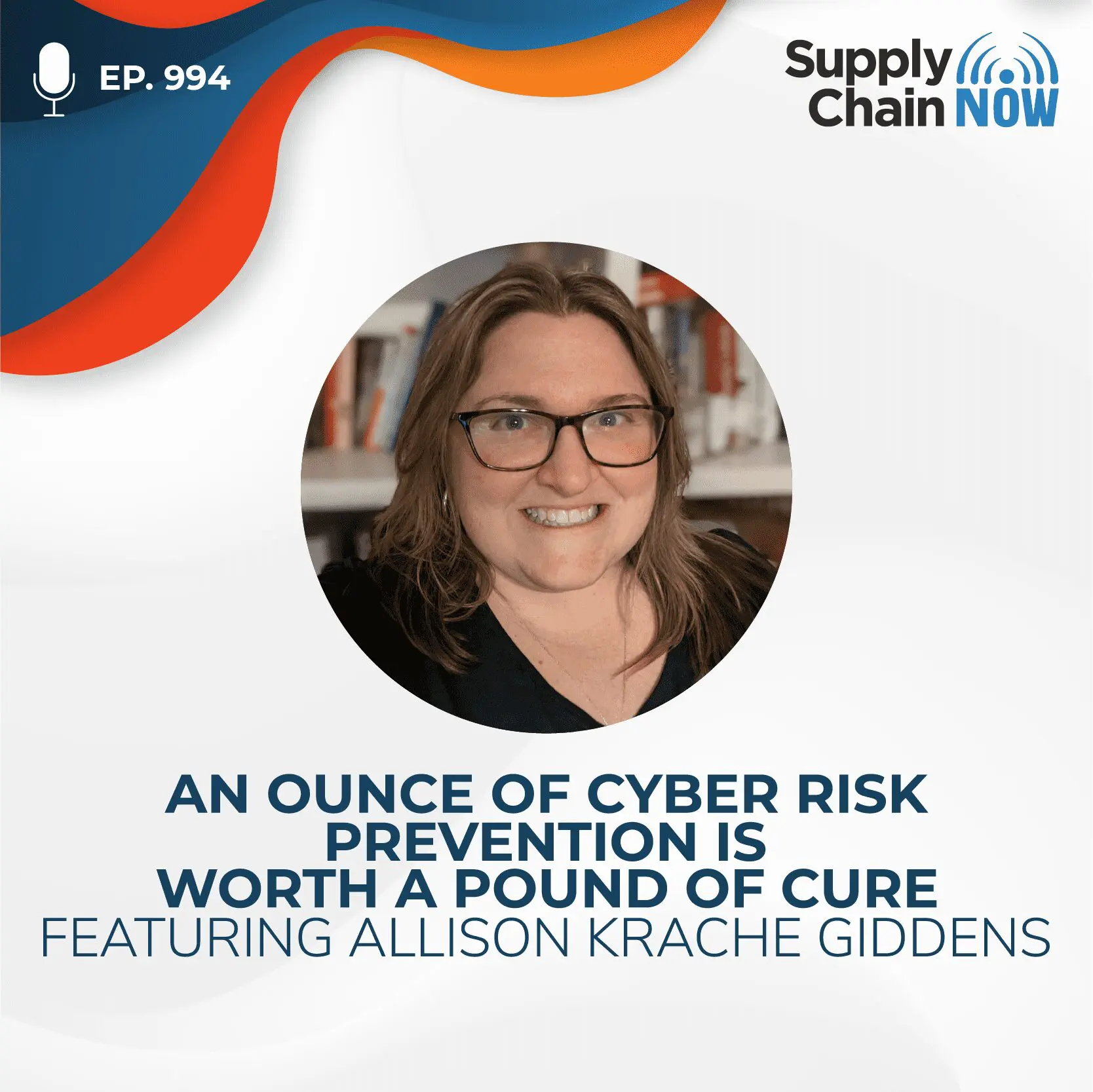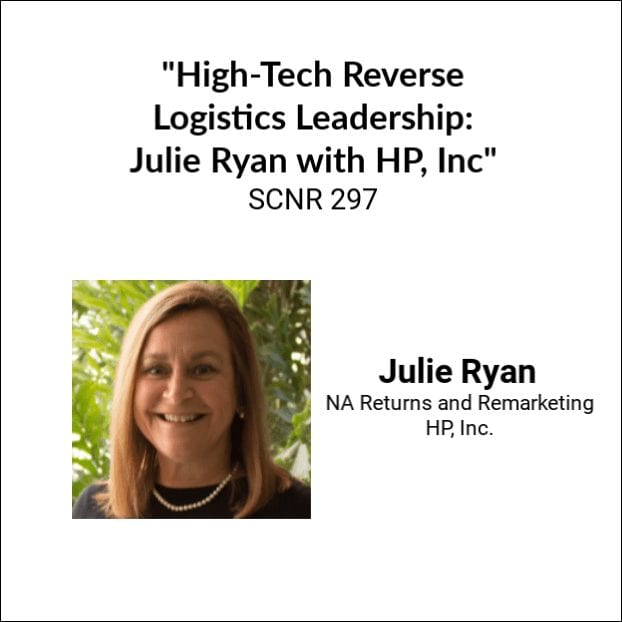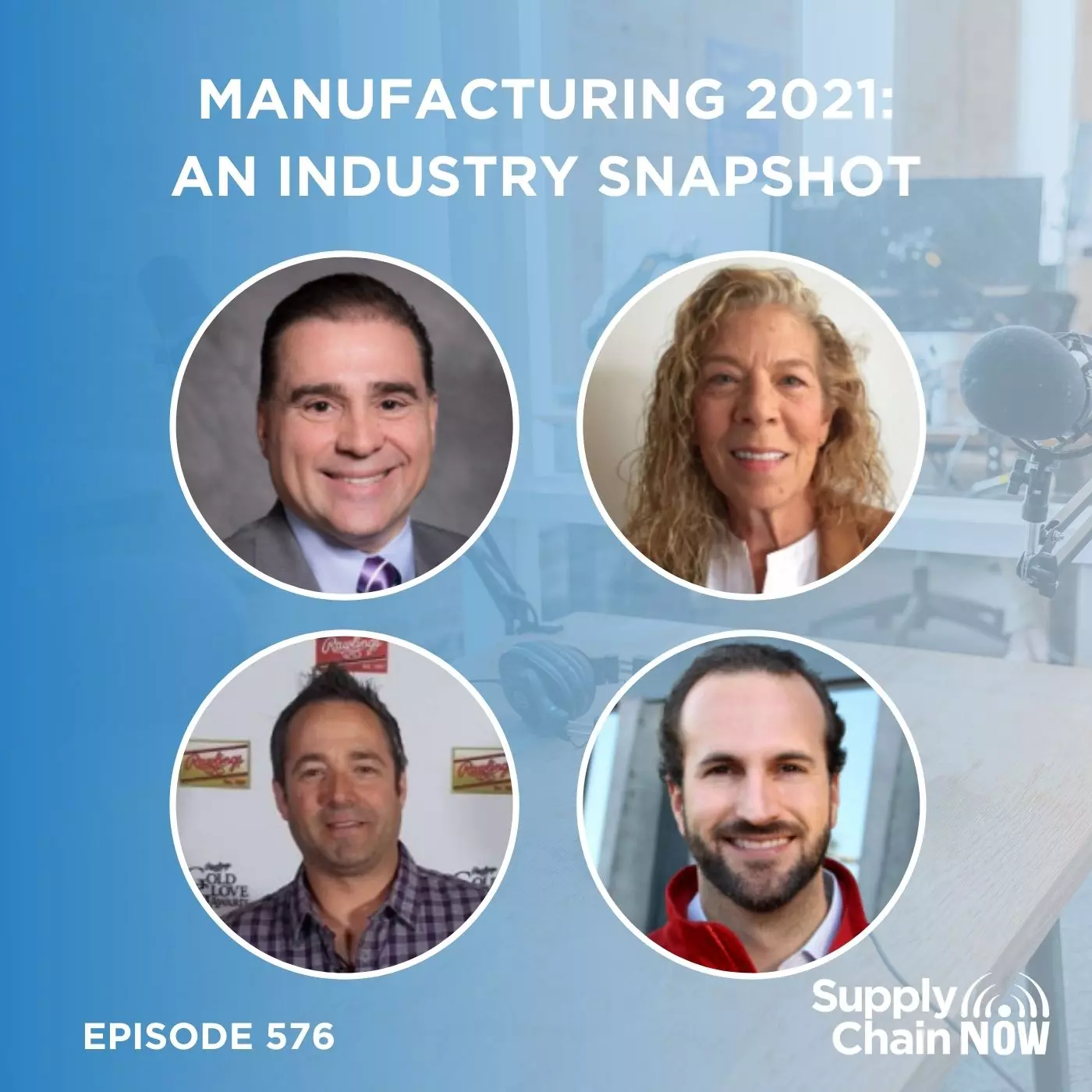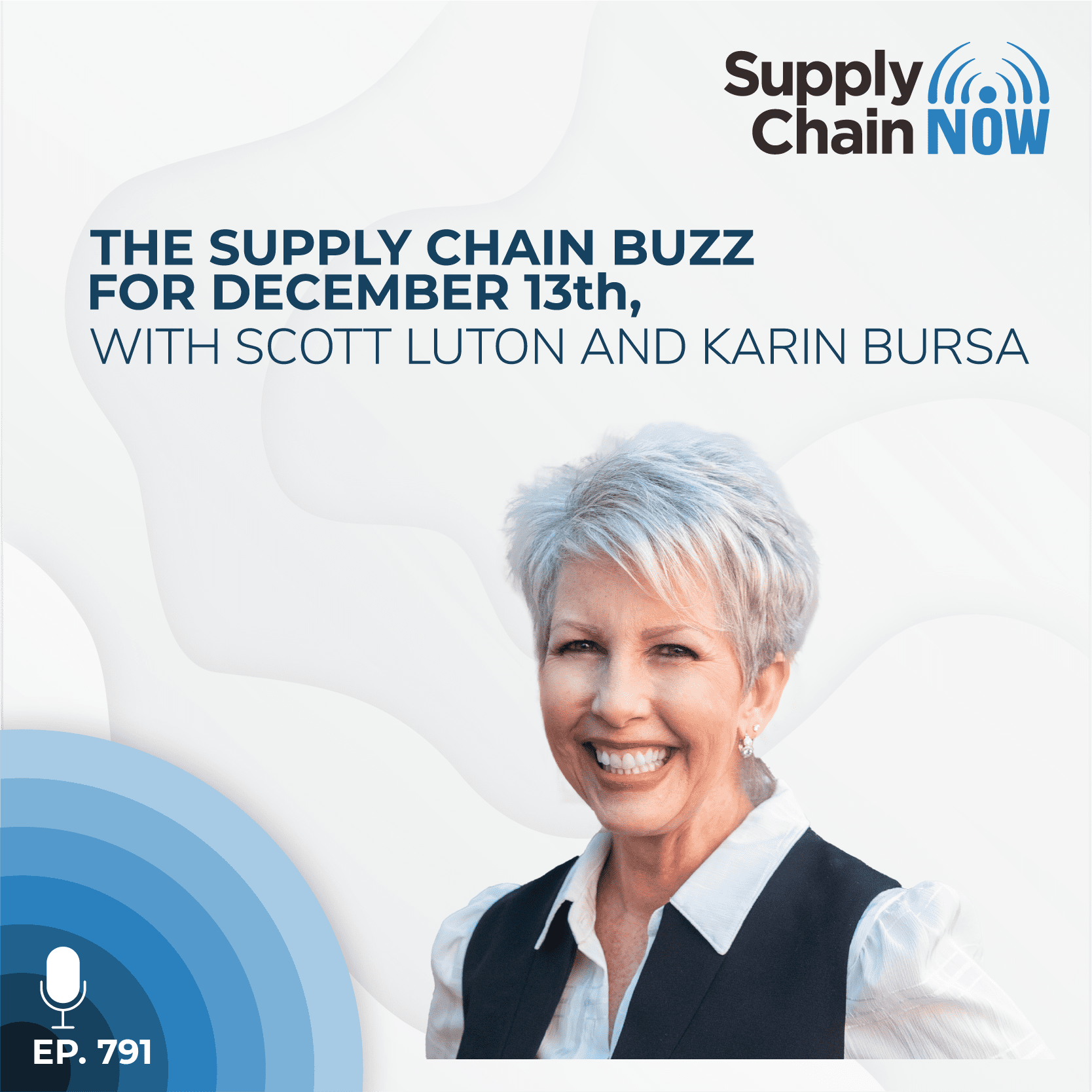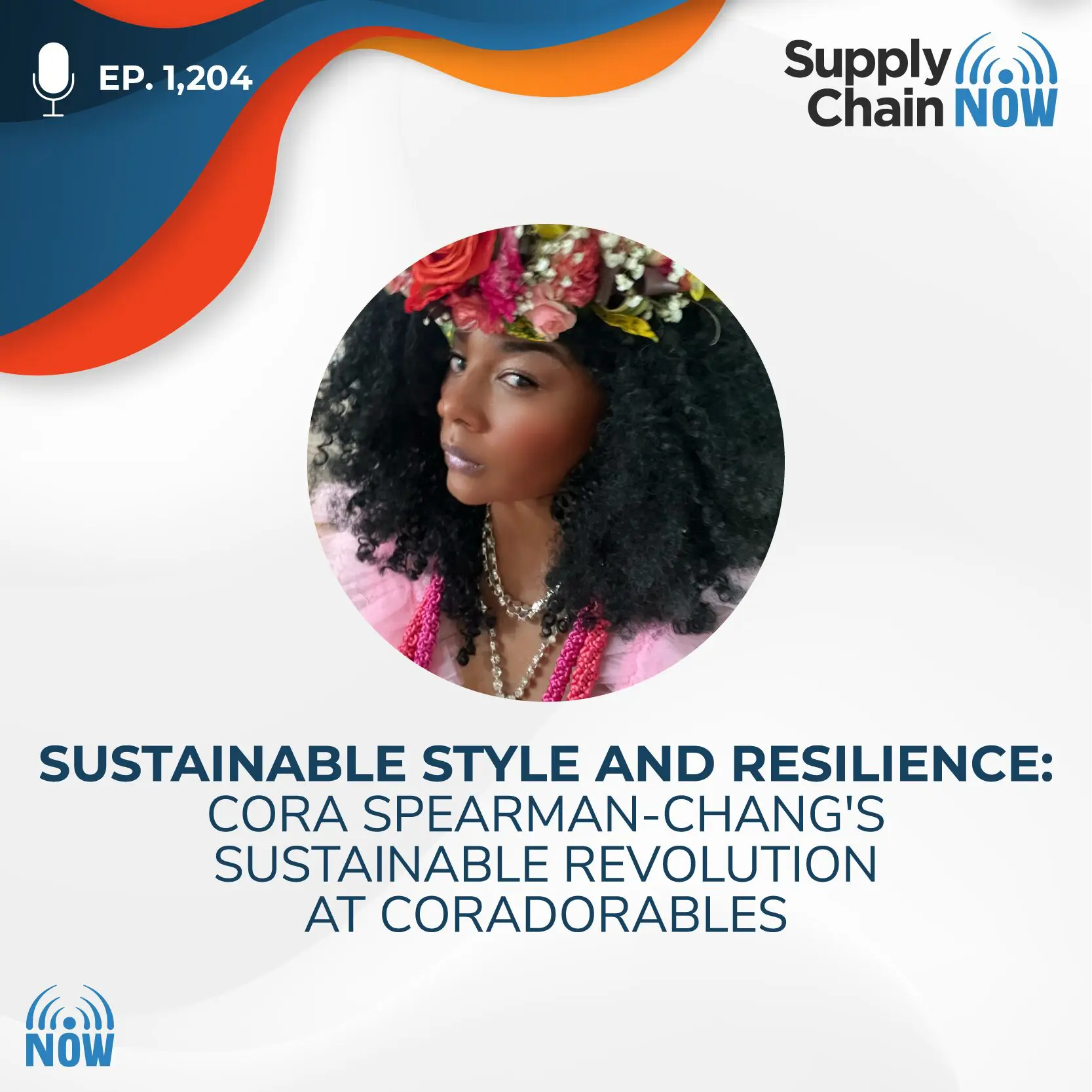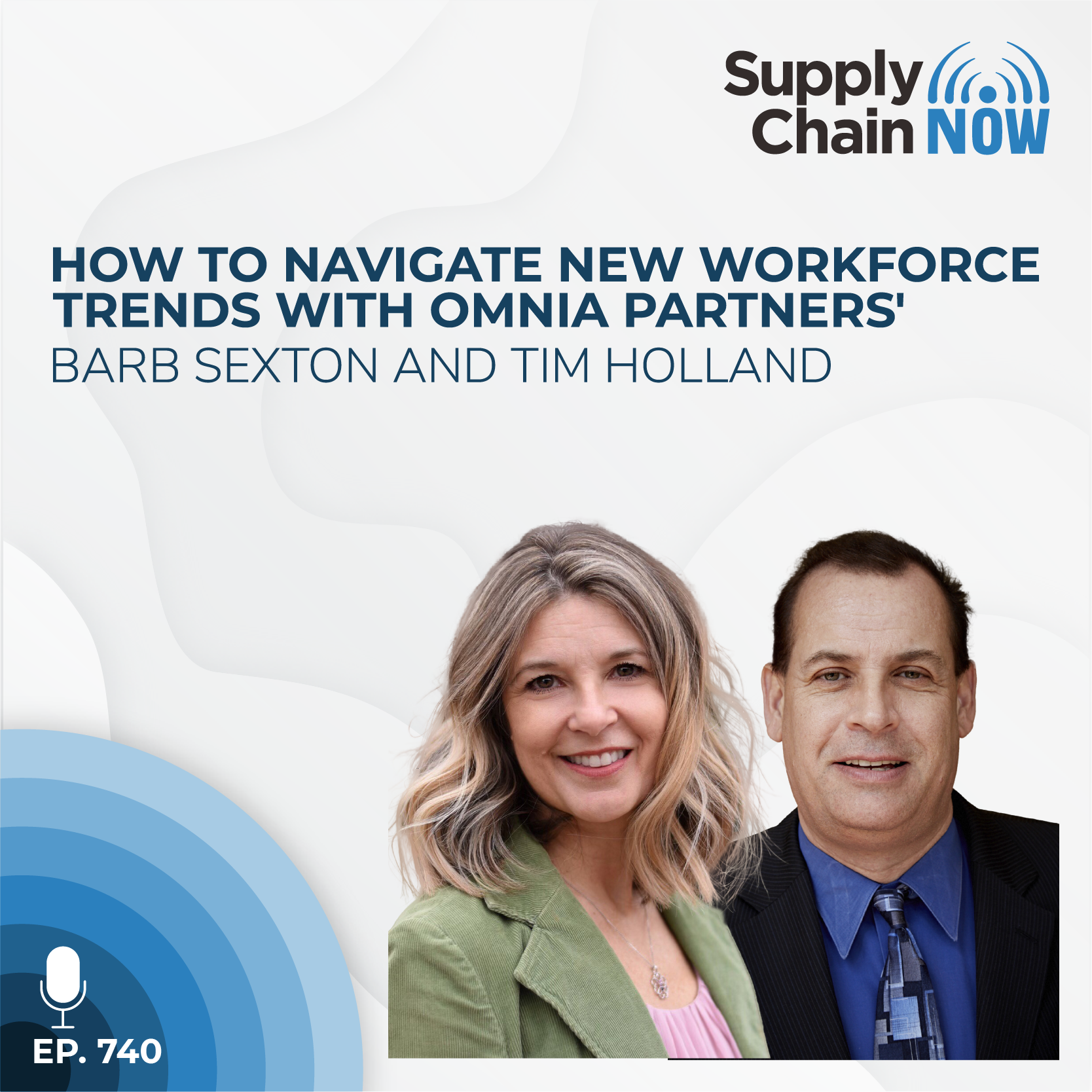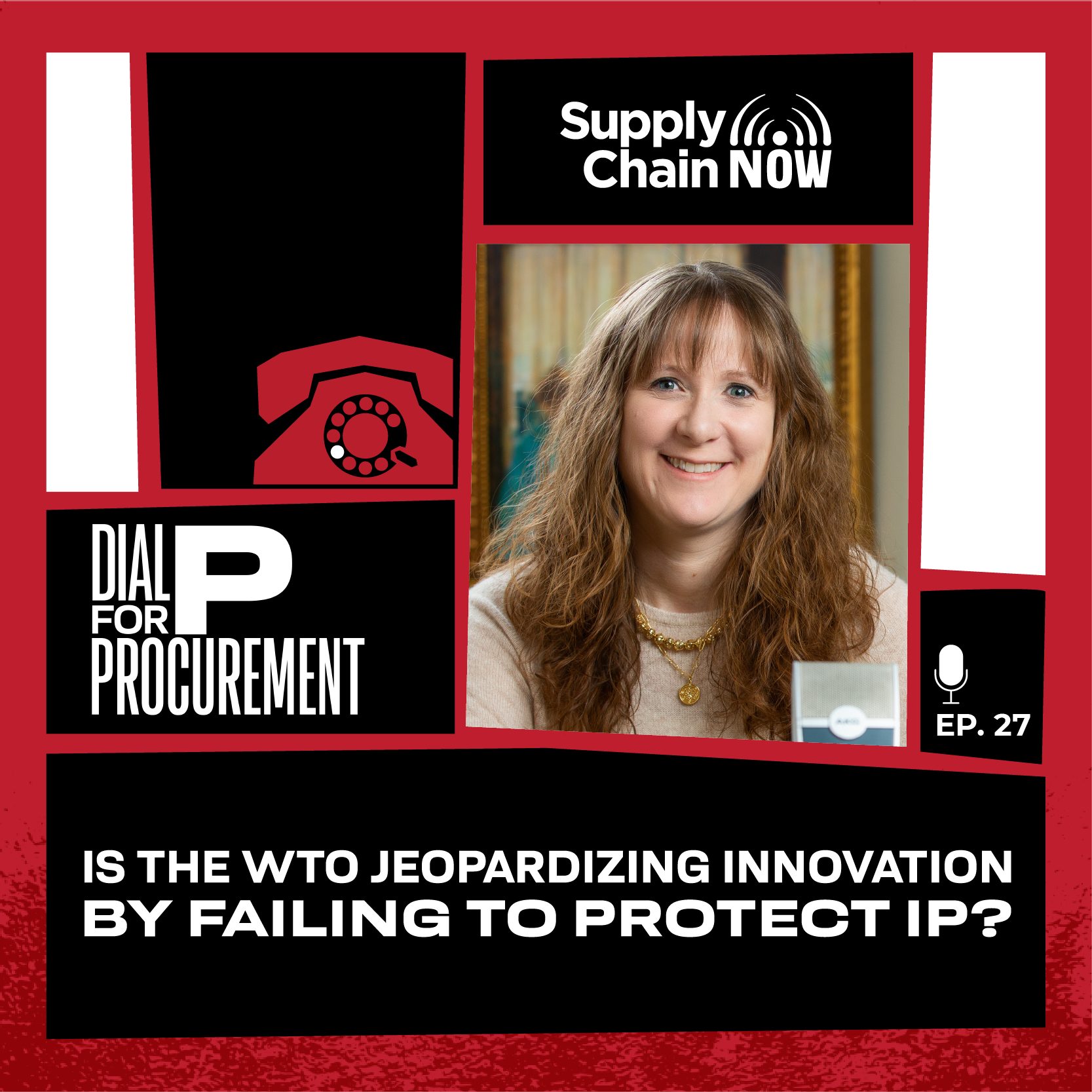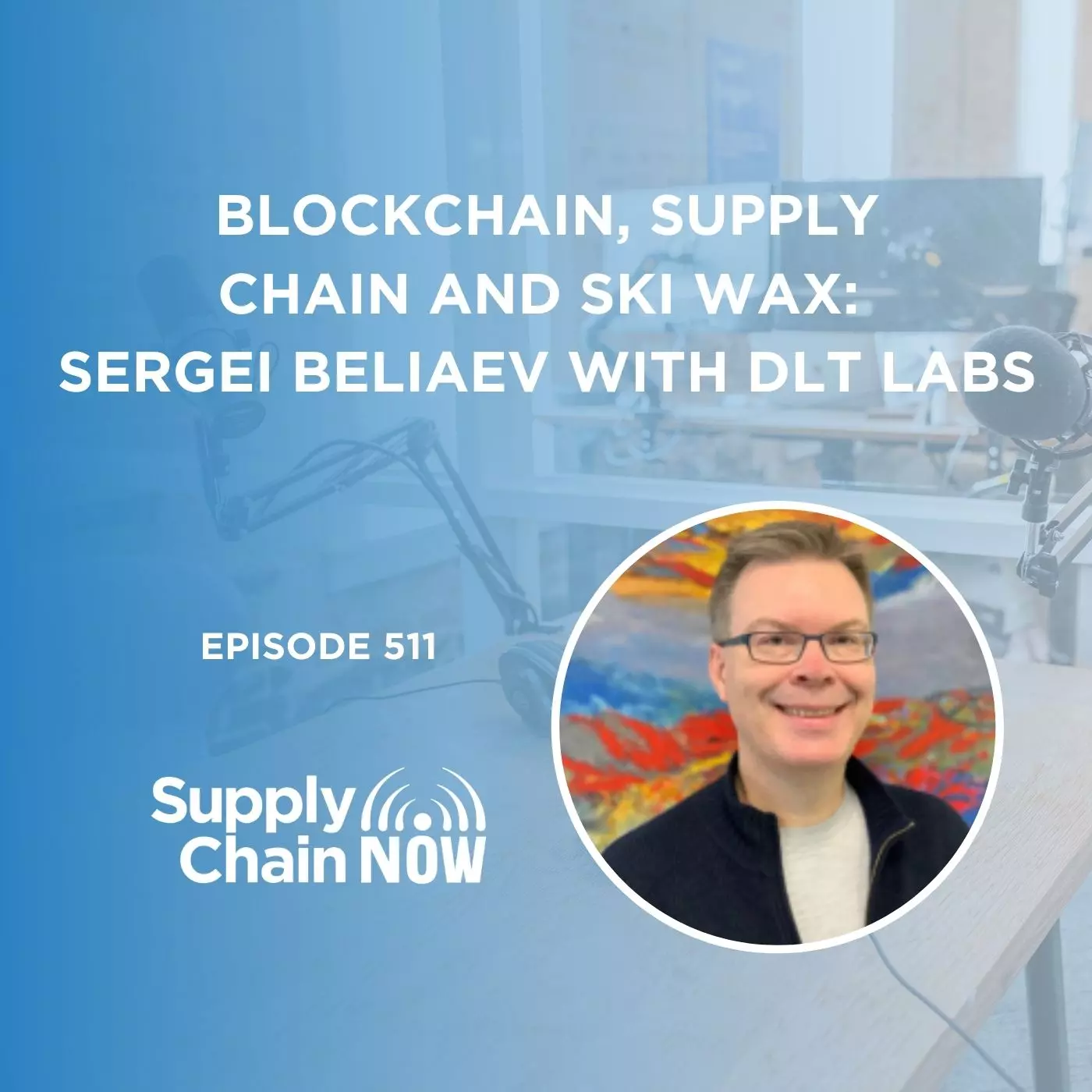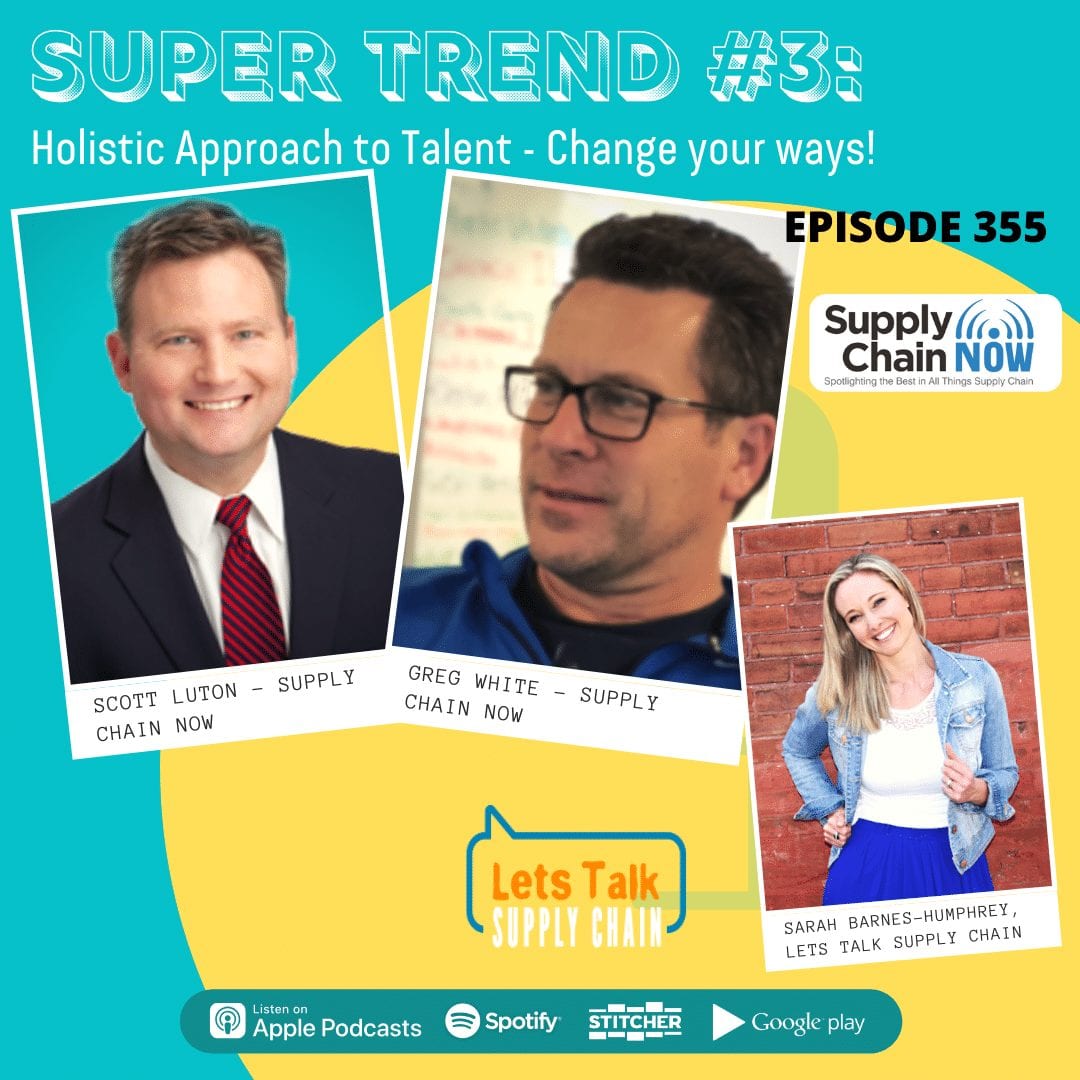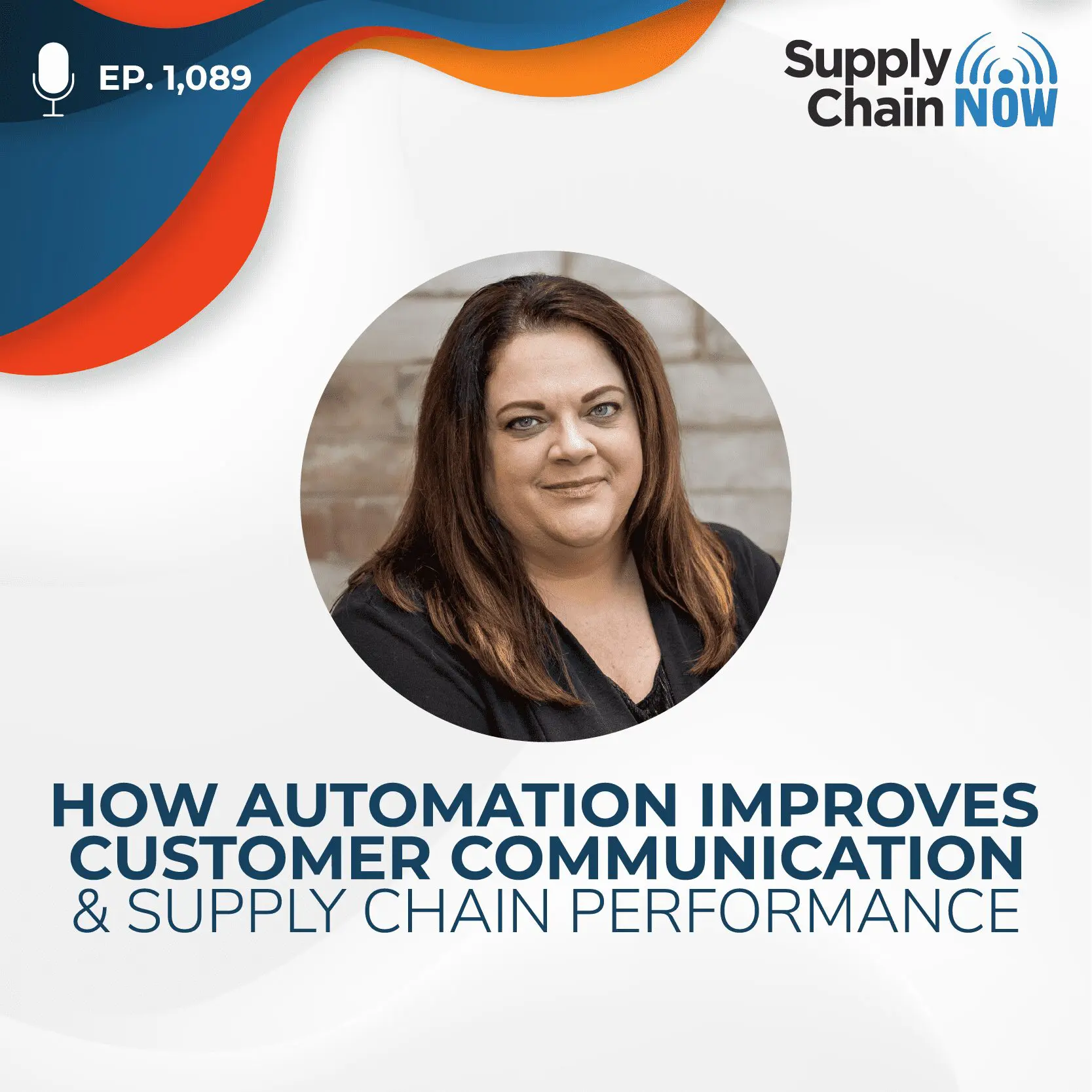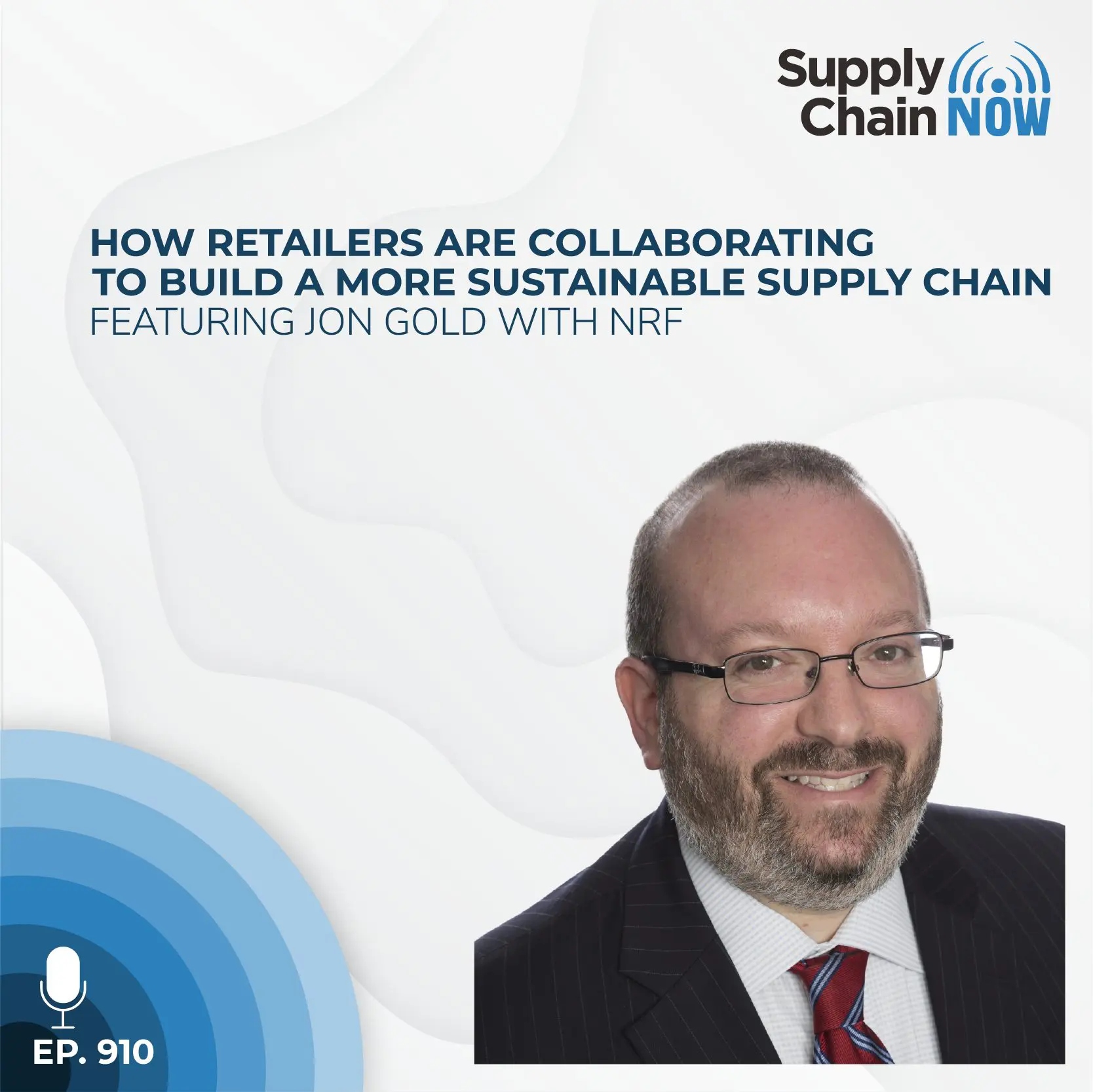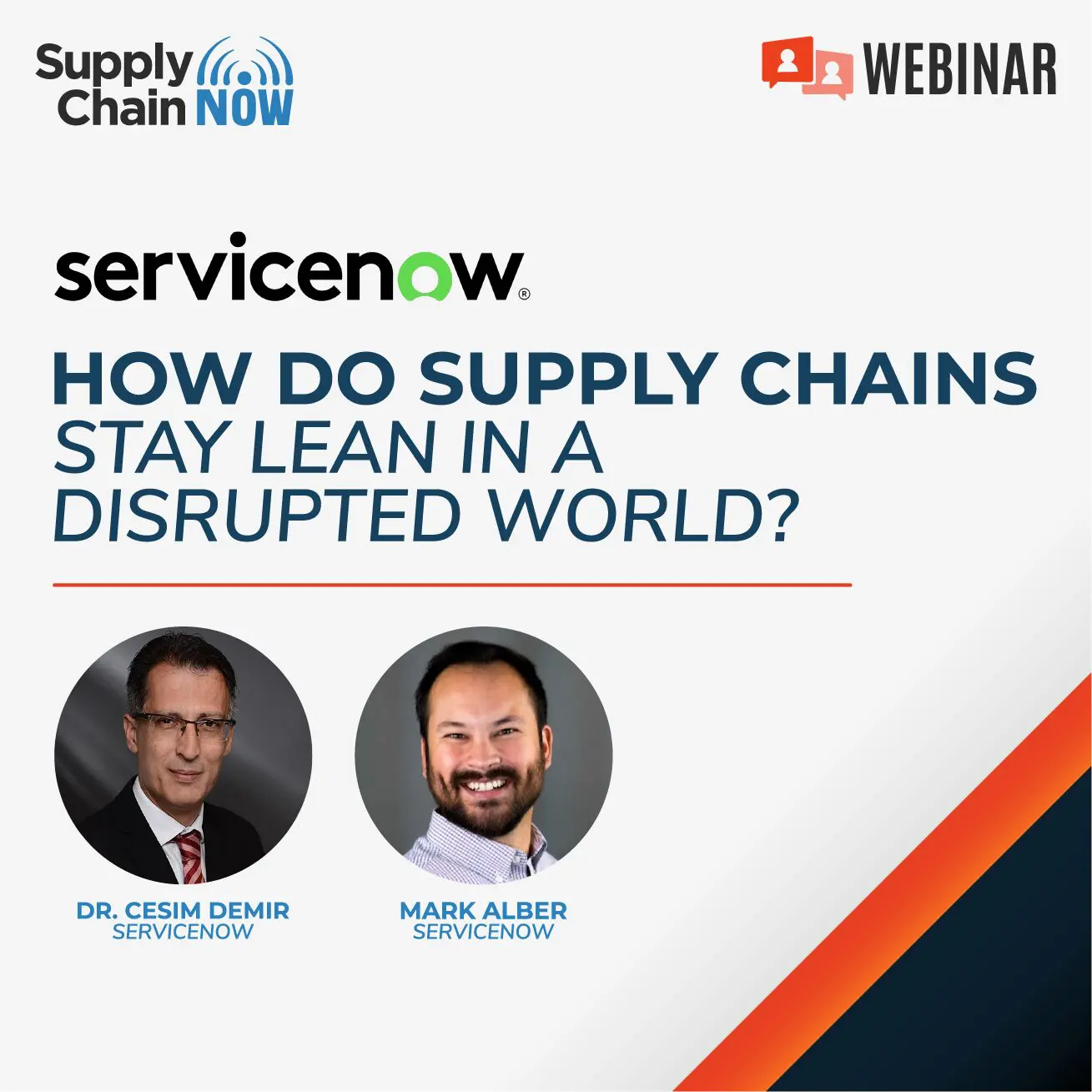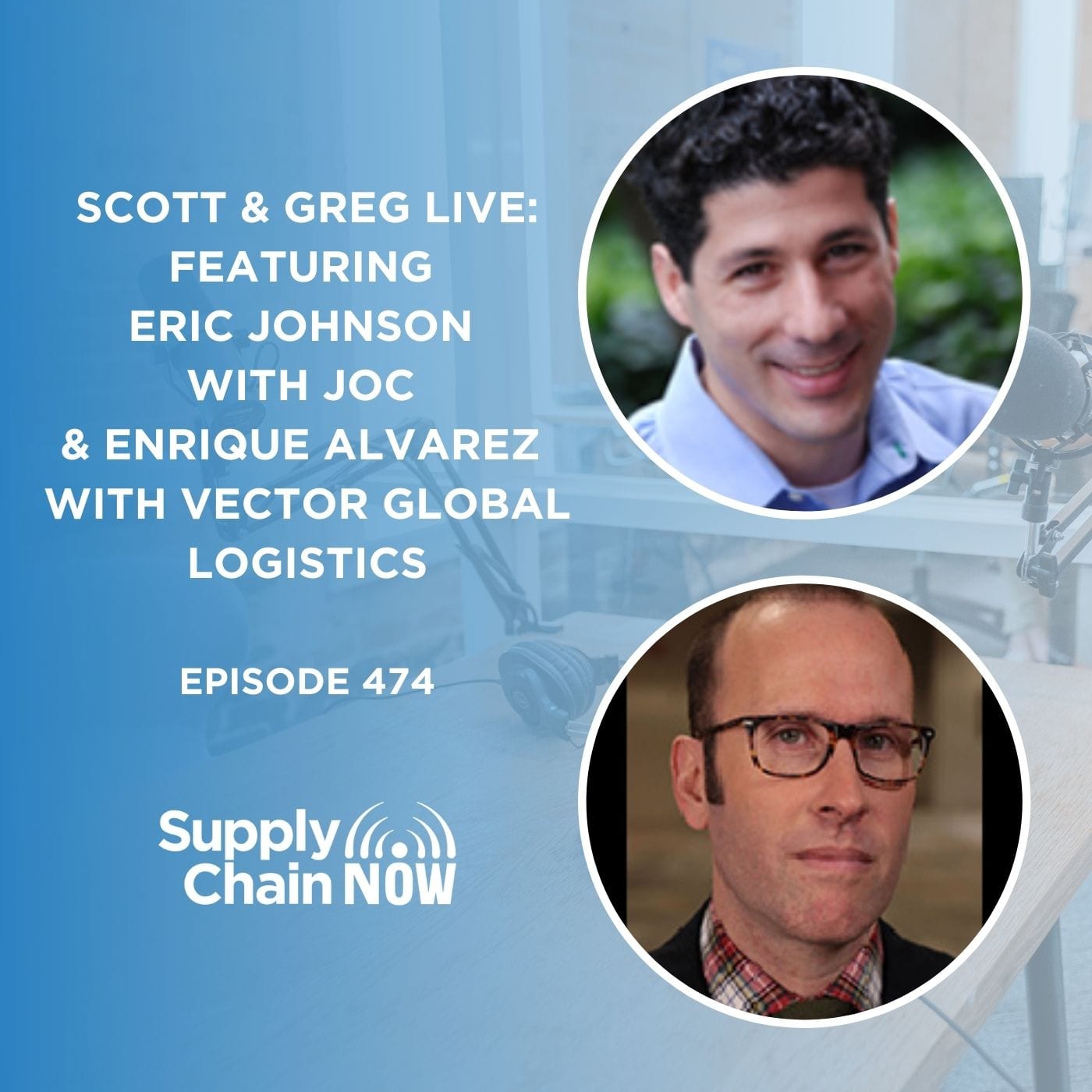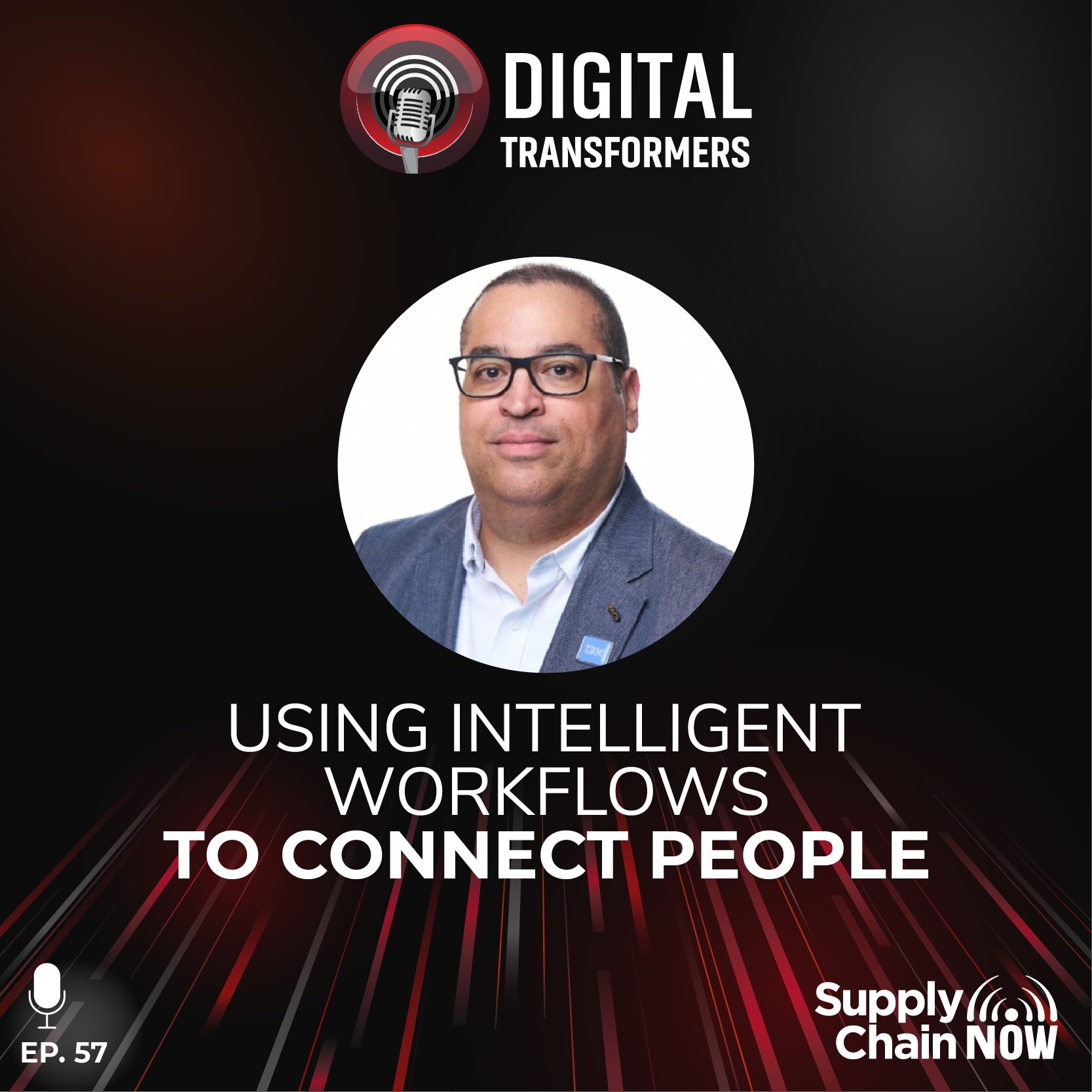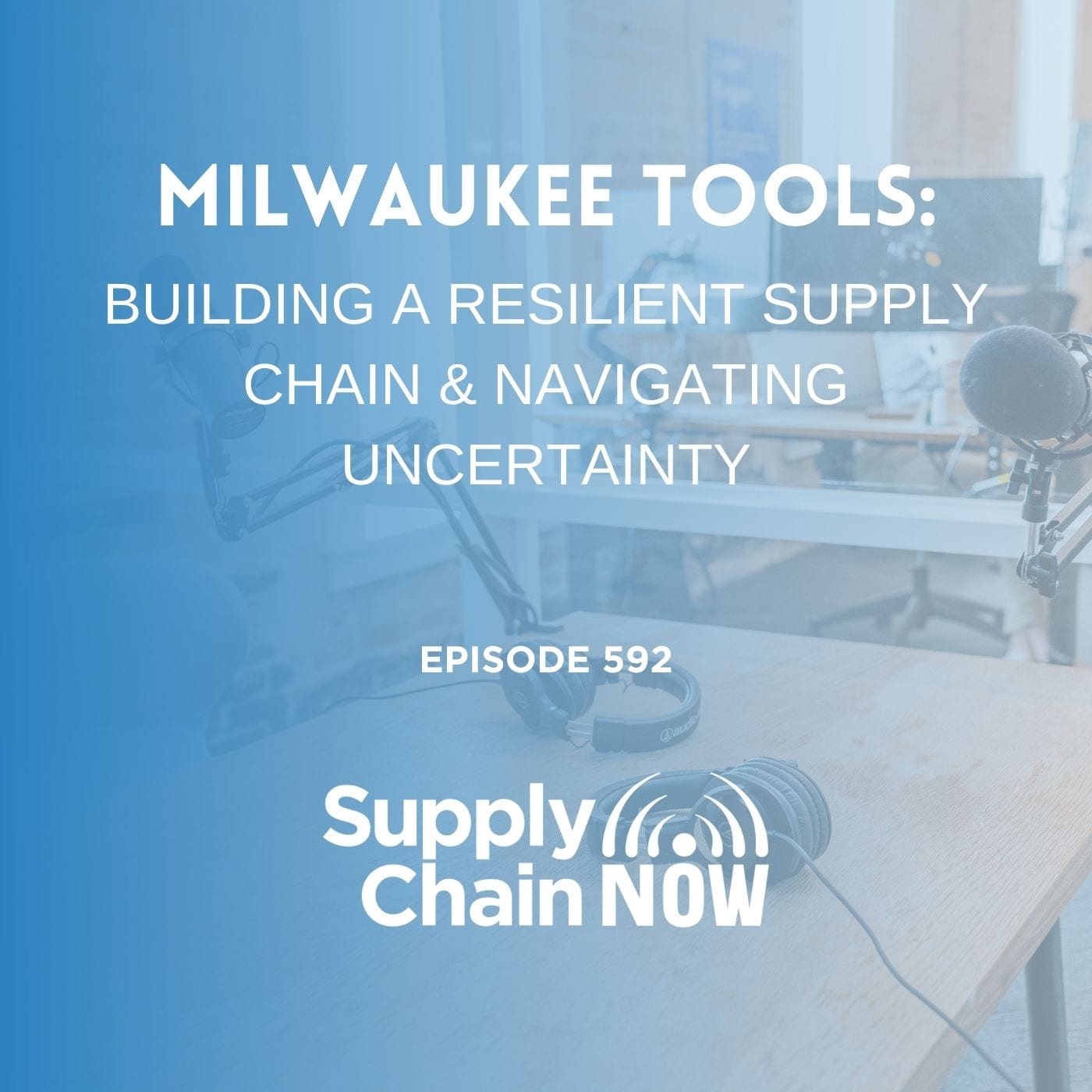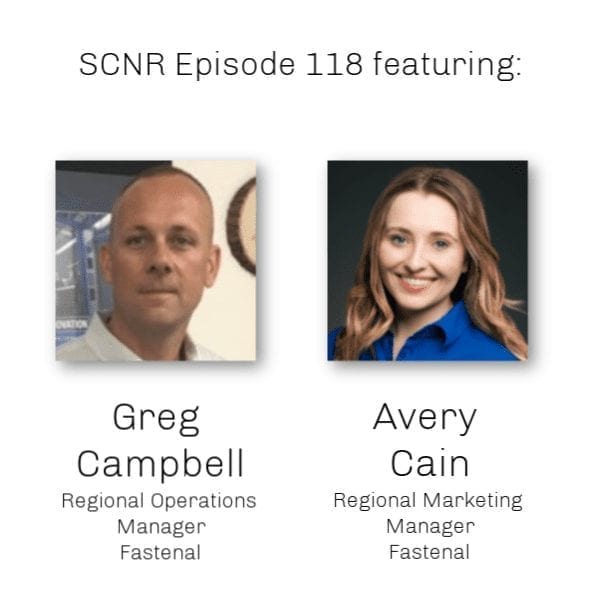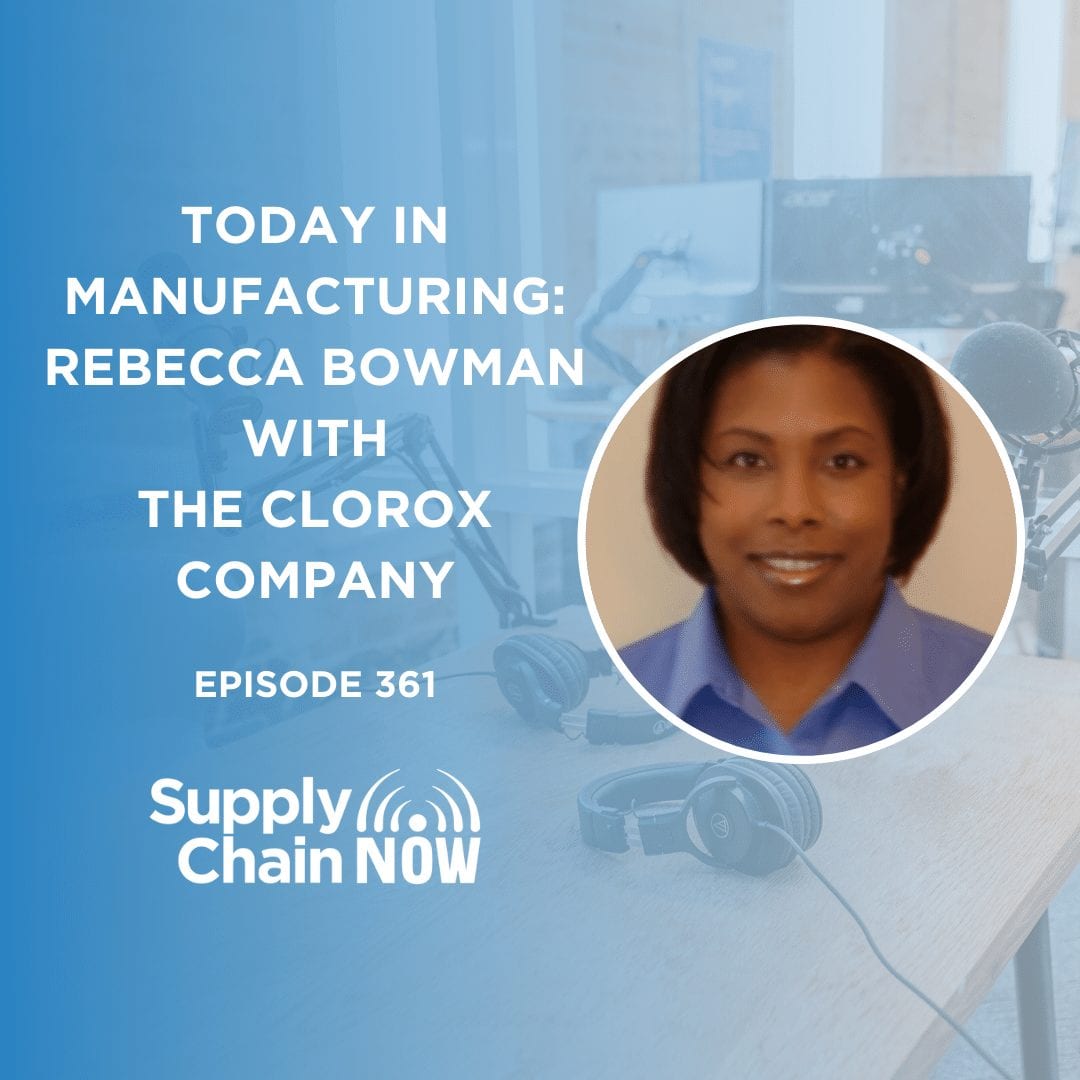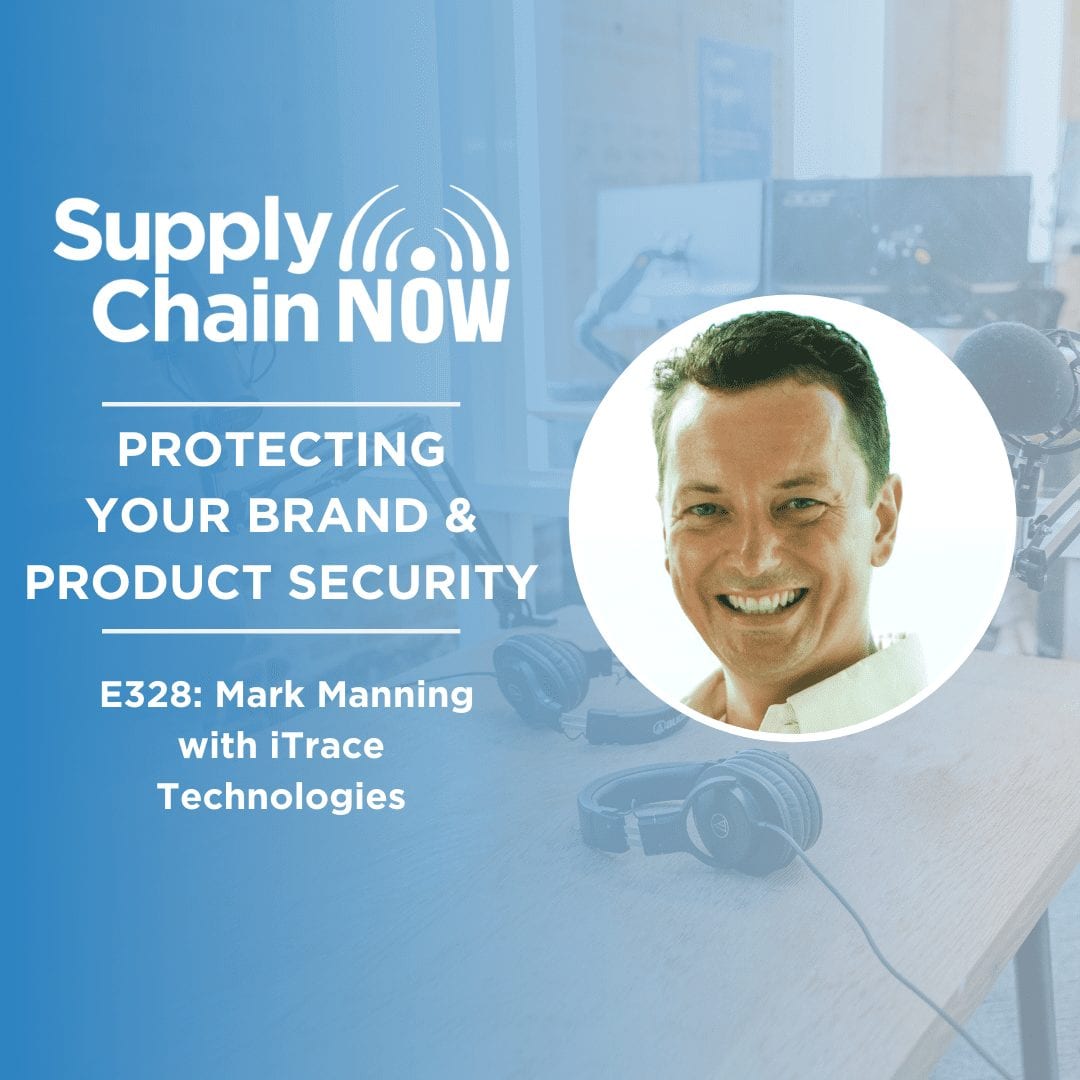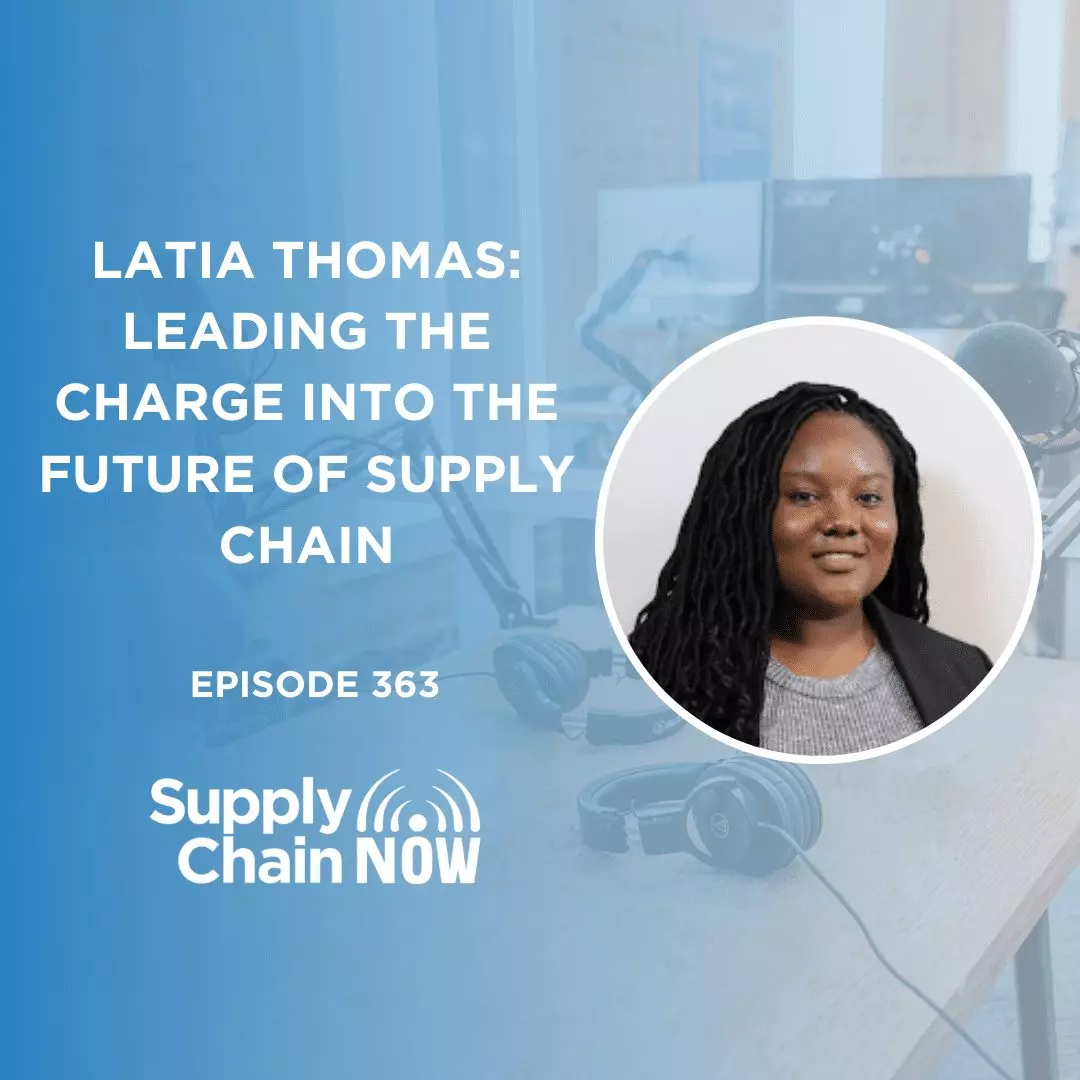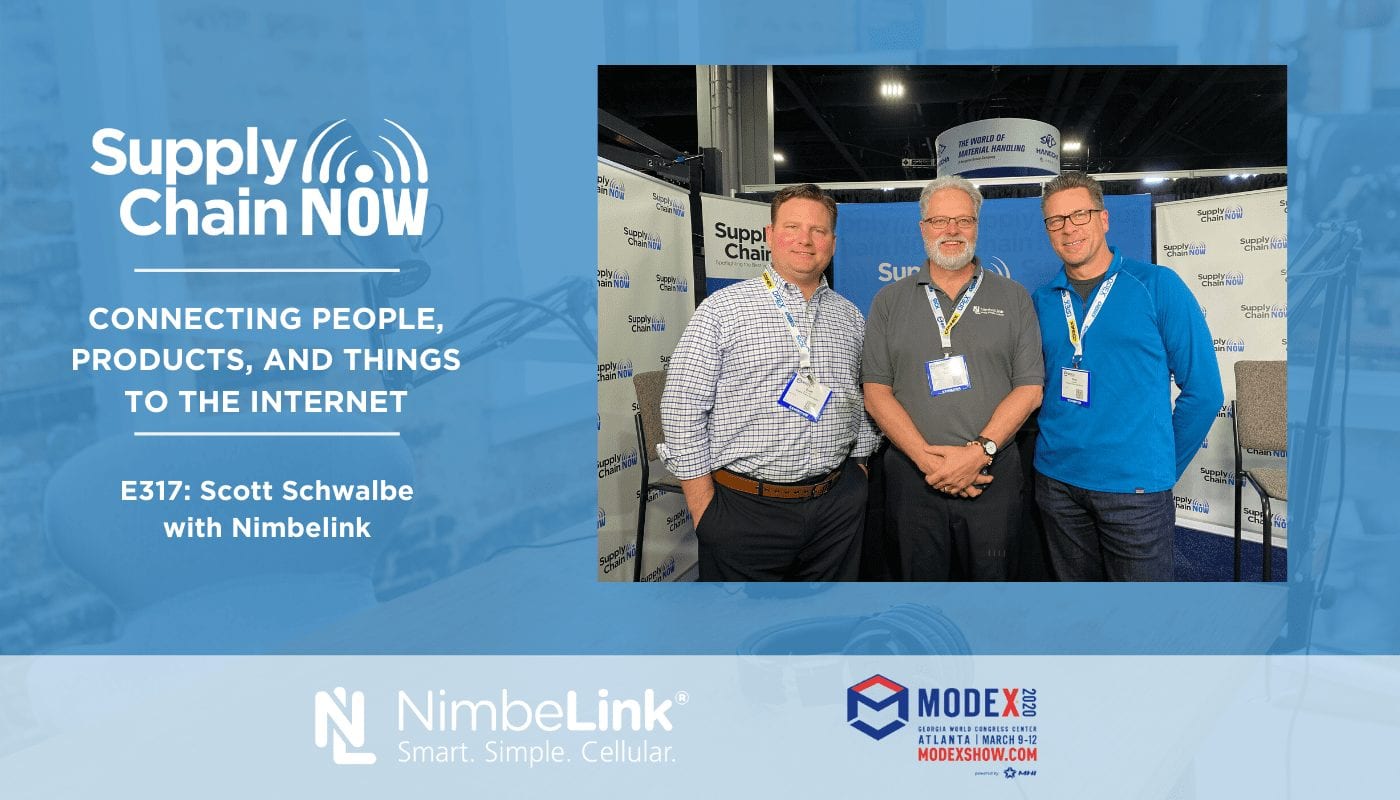
Episode Summary
“In sales and business development, if you can’t figure out the problem, you’re never going to be able to solve it.”
– Scott Schwalbe, Co-Founder and CEO of NimbeLink
We live in an age of unprecedented connectivity. The technology to track assets, shipments, and pallets, has never been more accessible or affordable. And yet, some challenges remain. It is one thing to track an asset within a warehouse, but once it leaves the building or loses its power source, visibility ends.
Scott Schwalbe is the Co-Founder and CEO of NimbeLink, a leading developer of cellular-based IoT solutions. He is also a Navy veteran, is soon to be ordained as a Deacon in the Catholic Church, and describes himself as a “reluctant entrepreneur.”
His team is working to make it easy for OEMs and other companies to integrate with cellular technology that extends beyond the boundaries of a single facility.
In this interview, recorded live at MODEX, Scott Schwalbe tells Supply Chain Now Co-hosts Greg White and Scott Luton about:
· What business challenges remain despite the progress that has been made to date with RFID, IoT, and cellular connectivity
· How 5G, the fifth generation of wireless communications technologies, is different than the generations that preceded it
· Which industries are leading the way in the use and experimentation with IoT inventory trackin
Episode Transcript
[00:00:05] It’s time for Supply Chain Now Radio. Broadcasting live Supply chain capital of the country. Atlanta, Georgia. Supply Chain Now Radio spotlights the best in all things supply chain the people, the technology, the best practices and the critical issues of the day. And now here are your hosts.
[00:00:29] Hey, good afternoon. Scott Luton here with you, love on Supply chain. Now welcome back to the show. We are broadcasting live today from Mode X, the largest supply chain trade show in the Western Hemisphere. You part here. A lot of the the buzz behind us is being held right here in Supply chain City, Atlanta G-A. On this episode, we’re speaking with a very interesting and innovative technology company that is doing some really neat things to connect people, products and things to the Internet, especially from a cellular standpoint. Stay tuned as we look to increase your Supply chain IQ. A quick programing note. Like all of our podcasts, you can find our podcasts wherever you get yours from. Be sure to subscribe and listen so you don’t miss a single thing. You’ve already heard him. He’s back. He is back. That’s welcome. And my fearless co-host on today’s show. Greg White Serial Supply chain, tech entrepreneur, trusted advisor and new one, Atlanta city champion. Tennis champion. How to put champion in there twice. Twice. Tennis champion. City champion. That’s right.
[00:01:34] Thank you. Yeah. So your championship belt will be a couple of weeks old by the time this goes. This is published. So you have a better time to savor and understand what got you there, right? Great.
[00:01:44] If you follow me on Twitter, you can see my trophy. I might have consumed a cereal multi-ballot beverage out of it. It’s like a Shalah sauce. It’s like it’s a plate. Golden place. Yeah. Yeah. It’s like it’s like the Wimbledon trophy. It’s a plate. We call it in out of the Atlanta lawn tennis, a dinner plate.
[00:02:01] If you win, you get a salad plate, dematic second place on fire at the dinner plate in 500 years. It’ll still be there. And Jones will be digging it out on a quest to go there. He’ll be much more impressed with my wife’s collection of plates because she’s got a lot more of the big dinner plates. Well, as much as I’m sure our listeners tuned in to talk about her hand. White tennis. Legendary career. We’ve got a really neat story. And I think what I believe doing my homework and the intriguing business leader that we’re interviewing here today on today’s episode, again, coming to you live from codecs, Scott Schwalbe, co-founder and CEO at Nimba Link. Scott. How you doing? I’m doing great. Thanks for having me. Well, you know, we have enjoyed our interactions with Ben, so my AM man that we figure in our short little five minute study of you the culture. You’ve got a great sense of humor at Nimba Link.
[00:02:54] We do an event becoming an icon in the IO T world.
[00:02:57] I believe it is. He’s disrupting things everywhere you go. You better be careful. He’s coming for your job. I’m telling you, he’s after it. Awesome.
[00:03:06] So let’s talk about before you start talking shots, shop Scott and start learning.
[00:03:13] This is going to get confusing for me. I guess you’re beguiling to Scott, the new show between two Scott. Let’s get to know you better. So.
[00:03:21] So, Scott Swaby, tell us where you grew up and give us give us an experience or two that helped shape your world view as you were come through your upbringing.
[00:03:31] Sheer. Yeah. So I grew up I was born in Minnesota and my my dad was a builder and contractor. So I grew up in that in that world. And I knew I didn’t want to do that. So I got other as fast as I could. Why didn’t you do it? That’s a lot of work. Shingling.
[00:03:48] And do you like a manual labor, especially in Minnesota weather? Yeah, yeah. Yeah. You know, back then in the late 70s, early 80s, there wasn’t lifts and there was just ladders and.
[00:04:00] Yeah, right. Hammers a nail. That’s right. That’s right. And those air tools or any of. That’s right. Right.
[00:04:05] Yeah. You know and I don’t know if I’m like anybody else, but I had no idea what I want when I grew up. So I I joined the Navy and then started my career there. And I walked in and I said, I want the shortest enlistment and the longest school and I don’t really want to go out to sea.
[00:04:21] What do you guys think they like? Therefore, I said, yeah, it’s an air. Yeah, I was. And two tables down. Exactly.
[00:04:29] I had and I was fortunate. Just had a great experience. My first four years in the Navy. And next thing you know, because of lack of planning. I retired in 2001 after many years in the Navy.
[00:04:41] Ok. Thank you. Congrats, Mike. That is a 20 years and navy.
[00:04:46] It’s never from what I understand. I was a one term Air Force enlisted, but all the folks I speak to that, you know, 20 years and retired. I mean, it’s not easy regardless what branch. But in the Navy where. From what I understand and please correct me if I’m wrong, you know, half of each year you’re you’re out at sea.
[00:05:05] Yeah. Did they manage to keep you on land for 20 years or you got the whole 20 years?
[00:05:10] But I was fortunate I was never permanently stationed on a ship. Wow. I did. I had great opportunities. I was. So I was trained as a cryptologist, as a linguist. So I studied a couple different foreign languages. And I spent eight years of my life at NSA and in the Financial Security Agency.
[00:05:29] Yes. The guys who listen to our phone calls. That’s right. So that’s you know, that’s where it started. So you asked about your where’s man? It’s talk about shaping your future. Right. Exactly. And so it was. And then I went into recruiting and then figured out, you know, I got my MBA and said, okay, I’m gonna retire. Now, what do I do? Anywhere that keeps you on dry land, it seems like you managed to figure out what those gigs were. That’s right. So what languages did you learn? I’m hearing Arabic in Farsi. Okay. Standards? Yeah. Or I could talk about it. najin essentially. EFT. Birgit. Yeah. Yeah. So I couldn’t talk to you know, I wouldn’t have told you this probably 15, 20 years ago. You could’ve told us now you’d have to kill it. Exactly.
[00:06:07] You can’t live. Thank you. Yeah. As long as you don’t catch a virus. You know what? That’s probably one of the best things that’s ever happened to me on this show.
[00:06:15] So, Scott, we were in Arizona a few weeks ago covering a conference out there. And I sat down and interviewed a formal naval aviator that also, as part of his career, he operated the panels on aircraft carriers. And I just I just happened to watch Midway, the movie that there were the Reeve revision of the movie. The Legionnaire movie came out. And to see the guys operate the panels, they’ve got to have no amount. Not sure who’s braver. Those folks that do the paddles or the pilots themselves. Sheer. And it’s a gift. It really is. Yeah, but but the flip side of what the side that you’re describing, the linguist’s, you and the folks that are, you know, trying to garner market intel at a time when the military value that much more so than the consumer, the private sector side now. Nowadays, you know, market intel probably is equally valued regardless where you sit, right?
[00:07:11] Yeah. If you believe the science data is the new bacon that you know, that taste tastes good. But it’s it’s as equally as prevalent. Have you trademarked that? Yeah, I’ve seen it on bumper stickers. Okay. I have not. Trade data is the new bacon. And we’re still at it. All right. So everybody loves it. Everybody there. And they want to consume it. Yeah. Yeah.
[00:07:33] All right. So let’s shift gears. So when you retired. Yeah. You had obviously a great naval career in an area that you a lot of linguists get out there. There’s a lot of, from what I understand, highly valued skills and experiences they’ve had. If you’re moving into the private sector, you get an MBA. So tell us about what? What’s the first thing you did?
[00:07:55] The first thing I did is really tried to figure out. The next role in my life, how do I get completely out of the government and not ever. I’ll deal with that. Hi. I happened to be living in Rochester, Minnesota at the time. And IBM had a big brass there. And so I ended up got involved with publicly traded company celesta, which is one of the largest contract manufacturers and got involved in business development, went down that route. And that’s what really started getting me interested in electronics and understanding that electronics, outsourcing, design service, product development. So so I switched quickly from one career right into the corporate world and went right into a publicly traded company. And then that just led to a couple of different opportunities which led to the company right before or nimble.
[00:08:45] And so just curious. I’m I’m a civilian. So so I’m always curious about how that transition went for you. I mean, that’s not always an easy transition to make from military to Sheer corporate world, and especially when you go to a Fortune 500 company. Do you feel like that made it easier or more?
[00:09:04] You know, for me. The transition went pretty easily because I actually was involved with recruiting my last six years of the Navy. And so I ran recruiting as as a sales manager for the state of Minnesota. So so I in them, you know, in the market sales. It was not really sunk in in the Navy persay. So the transition was was very easy for me. So I was very fortunate. But now there’s some great groups out there like Bunker Labs. And a lot of incubators that are helping entrepreneurs and people coming out of the IRA.
[00:09:36] Heroes. Yeah, we’ve got one here in Atlanta. Vetlanta do a great job to transition from it. Yeah. Okay. What a great resource.
[00:09:43] So you’ve touched on. You said the E-word entrepreneur. I’d love to kind of get to the point where you chose to found your own company. Tell us about that.
[00:09:53] Yes, I would. I would classify myself as the reluctant entrepreneur. Okay. I as I was working. Is that trademark? I don’t think I was trademark. We get that right. I mean, we can Ryder. I’ll have it done by so we can write about our name. All right. Thanks. Yeah, I was at a nice private company, a number of engineers doing product development.
[00:10:14] And it was just we had some great ideas and people who had great ideas in the organization, but the ownership just didn’t want to take them forward. And so we had some good partnerships with some carriers with Horizon and. Yes, technology folks. And one of the key engineers at the company and I decided that we would just take it. And we actually asked the owner to fade. Do you want us to spin out this technology and use it? They said no. And so we just went out and decided to do it on our own. I dabbled a little bit very unsuccessfully as an investor in a in a beer company while I was at that, you know, thinking, hey, maybe I could become a brewer.
[00:10:57] And I say, Rocky. Yeah. Yeah. No, actually, it’s doing very well. But it’s just a learning thing that, you know. You should never get involved in a business where you rather consume the product Dan Solla, don’t make your vote.
[00:11:12] There you go. Yes.
[00:11:15] So that didn’t work out. Yeah, but overall then they moved into Nimble. And can we can talk a bit further about that if you’d like.
[00:11:22] Yeah. Yeah. So what I find it really interesting there is that you just took EFT after the military. Right, where you where you’ve got lots of structure and and lost ability and then working for public held companies were assume there a lot of structure instability at least that when the roles are heard, you know, you speak to and then to take a huge leap with a technology will founding a technology company. I mean, that was it. Was there one thing that kind of pushed you over the edge?
[00:11:57] You know, I was just fortunate. You know, again, you know, from what I was, you know, I had medical paidfor from the military and also financially, I wasn’t you know, it wasn’t as big a risk as you might, might, might perceive. But at the same time, starting the company is a challenge for me, was to be flexible and put process in place, but not put so much process in place that it was die down and stay for the company, you know, working for the government for 20 years.
[00:12:25] And then in America, it. And then that’s not exactly training.
[00:12:28] It’s no. And I ran, you know, a large manufacturing group. And so, you know, Six Sigma process and, you know, and doing all of that. But I thought it actually was pretty easy, you know. But, you know, I now seven years, eight years, seven years later, looking back on it, you know, some of the things that we did because we did put some process actually really helped us putting a CRM tool in before we put a financial tool in. And now just some of those type things that in and following a sales process and and doing those type things, all that education training experience allowed me. And then and then we implemented the the entrepreneurial operating system. If you S.E.A.L.S. Yeah. So that was. It’s process. Yes. I got to put in a process that was actually vetted very well for new enterprise. Yeah. And it forced me to kind of follow something that was a little more a little simpler. So that that was very helpful.
[00:13:25] Yeah. Actually I’ve done that at a couple of companies as well. So. Yeah.
[00:13:29] Is your Jean Wick my implementer? You know, I’m Gina.
[00:13:32] No, I actually went and just self-trained and did it myself. Did you? Yes, I went and actually. As I started the business in 2013, wasn’t making any money, so that had time on your side time.
[00:13:46] I had all.
[00:13:47] And so I went in and actually implemented that somewhere else as a consultant just to pay the bills while we were starting in blenkin and getting that role.
[00:13:55] It’s a fantastic process. I highly urge companies to use it.
[00:13:59] So we’ve mentioned no link probably 17 times now. Yeah. Now then, why did we mention that? What is it you do now? So tell us more about what the company does.
[00:14:07] Yeah. So it in a nutshell, if you look at number like we’re an enabling technology company, we and you know, we enable others to actually connect their devices, connect their products to cellular. So. So we’re staying ahead of the game to make sure that we understand cellular technology and we do what we can to make it easy for OEMs, other companies to integrate. So so yeah, we started in 2013 and we still a line of products that are embedded modems. So it’s a you know, it’s an end device. Certified and embedded modem customer chooses it. They designed a product get into market faster. It’s very horizontal, which is exciting because we embed modems into drones in the kiosks into and it combines into all kinds of different products.
[00:14:55] So when you say horizontal, it’s widely applicable. What you’re saying. Okay. All right. Gotcha. Yeah, I am. Your couple of pay grades ahead of me above me.
[00:15:03] You have a really basic question. So this is the question that always comes to mind. We talk about these kind of technologies. Why cellular Sheer versus Bluetooth, RFID, Wi-Fi, whatever.
[00:15:15] And I don’t know what it’s cellular me to get. Well, I mean, let’s talk about the pilot begins. Yeah. What it gives you. Yes.
[00:15:20] So anytime you have a product that moves from point A to point B to point C, and especially if it’s outside of a building. Daryl, Bluetooth and the like. I think it worked really well when you’re in a confined area. You can control it, but soon as you leave this building. Yeah. And you leave Atlanta and want to go to Washington, D.C.. Yeah. And then the next day you’re going to be in Bismarck, North Tocchet, Dakota. You need a technology that you can actually communicate wherever it’s at. Cellular is everywhere. So that’s at a high level. Yep. And then the other thing it really caught us early on is companies coming to us wanting cellular in places we never expected. And so so we have builds a kiosk or a display and they’re gonna go put it in Wal-Mart. They expected this walk in and plug it into the ether net. And while they’re saying there’s no way we’re letting you in our I.T. system. Yeah. So they had to build a cellular connectivity so they can upload and download their digital displays in their commercials in the evenings. So anywhere it’s me wants autonomous a connection where you don’t want to deal with the I.T. That’s one area. And if you’re remote, it’s another area. And if products are moving around. Yeah.
[00:16:24] So I’ve worked with a major marketplace retail company named for a river. Who shall it won’t remain nameless. And one of the issues that we had frequently when they were building a new facility was there wasn’t cellular there or there wasn’t Wi-Fi in the facility yet because the walls had just gone up and the roof had just gone on. Do you.
[00:16:48] Do you experience that even if you’re inside the four walls as cellular, more available than Wi-Fi? Yes. Or more reliable. Yeah. I mean, it does your phone work? Sometimes. Yeah, I’m on it. I’m not gonna stay long.
[00:17:03] So. So if you’re sometimes. But if your phone’s working then you can use your machine connected. Yeah. You think about it that way. But what’s interesting with some of the new technologies, you might hear the word LTM or Kadam, that technology actually penetrates walls better.
[00:17:17] It actually goes deeper in the 5G revolutions, correct? Yeah. Oh man.
[00:17:22] Is that the benefit? I mean, you know, I think people think 5G is something that’s really just more penetrable, more to think broader brought and wider broadband because the Jean-Juste dance for generation generally fit operation of Abdula.
[00:17:38] And really interesting, the fourth generation is not being cannibalized to make the fifth generation it’s actually being built upon, whereas the fourth generation in place, the third generation and third generation replace the second generation. Got it. So 5G is actually enhancing and building out the fourth generation. And what’s happening with the fifth generation is you you got the really, really, really, really high speed that’s going to drive, you know, augmented reality in the connected car and all this stuff. But then you have a spicey down here that we’re gonna be able to get down here and do really low power data. And that’s what’s really exciting and that’s what’s driving the opportunities that, you know, that’s allowing us to track things in the supply chain and making the supply chain tracking more feasible today than it was just six months six months ago. Interesting.
[00:18:24] So how would beyond what you’ve already shared about Nimba Link and what you do when you think about the why you’re why whether you interpret that as founding the company or your Y to grow in the company and in serving and having a reason for. Listing a reason for jumping into bed in the morning and going to bed, not thinking about no link and what you do for your customers. What would that be?
[00:18:49] Yes. It’s the customers then. The employees. Yeah. It’s really exciting. We just had one employee just had a baby last two weeks ago. Got another one.
[00:18:57] Come in. Yeah, we got family girl. And you know, it’s really cool that it is efficient. Yes. We actually have that. We have this. Great.
[00:19:05] You know, we had twenty twenty two employees now and their families and and so the why today is probably different than the why was five years ago. As as I look at building the company and going out and in the driving to get up is is that’s exciting to me is seeing that the employment and the families and the culture that we’re creating from a customer perspective. We’re also seeing the exciting work by customers working with us and us partnering with them that they’re able to increase their revenue, you know, increase their bottom lines and hire more people. So we’re actually seeing a really great impact by by doing what we do to allow other companies to actually expand and build their businesses.
[00:19:52] So can you give us you’ve got a few devices here. There aren’t a lot of toys. Yeah, I feel too. I feel compelled to handle them. So if you’re listening and not watching, I guess you say it’s I am very you know, they’re not. You know, they’re not. I mean, they’re not as big or.
[00:20:08] Yeah. That special looking. But give us an idea of what somebody would use one of these puffier or so.
[00:20:15] As I mentioned, we’ve got a cult. They are one line of business. Our cellular modems and then when LTM came out, came into place, the low power, we a number of people asked us to make asset trackers to track assets that move indoors and outdoors that didn’t have power. So what you’re seeing here are battery operated asset tracking devices. That’s the reason we’re here at the show, is to actually help customers understand, help companies understand that they can track their assets today when they move indoors and outdoors. You take this particular unit that I’m holding here, it’s now or what do you say? That’s about five inches for now. It’s like a cigar. Yeah. This has a cellular module inside it. It has the ability to do location was cellular triangulation. Wi-Fi sniffing, SS I.D. sniffing and g._p._s location. It’s got an accelerometer. So you can actually, if it’s moving, knows it’s vertical or it does if is in as if it’s not supposed to move, it starts moving. It can wake up. It’s got temperature and humidity inside this. That’s all run on to Double-A batteries. And right now, if you shut this down in an in between communication, say, hey, just wake up once a day and say, hey, here I am. This will last about five years on the Double-A batteries, double a battery.
[00:21:30] And so not making Duracell very happy with that sky. Yeah. Exactly. And these other ones are just different versions of that.
[00:21:37] But what’s exciting about this right now and the reason the Supply chain is so excited about this is that. Typically, when things move from point A to point B, they don’t have power. You know, it’s not like you got a set of power pack and plug it in. And when you walk around this show, there’s great technologies. RFID been here for a long, long, long time. And RFID is a great technology that’s not going away. And it works very well when you’re trekking within the warehouse. But when that product leaves the warehouse and goes into a truck, you don’t own and you don’t have any infrastructure in there. You lost visibility, right?
[00:22:13] Yeah. That’s all the rage in this global area right now. Right. Right. What’s old is new again. That was a part of the came out the first conversation, the very first episode here at Moto X. And there’s a little bit of an element here with RFID because it’s not good. It’s been around forever. Yeah, but the application is still very, very valid.
[00:22:34] Sheer. And we’ve actually talked about putting RFID tag, you know, in this as well as, you know, have the radio so you could actually use this as a mobile access point that’s traveling along with that. So you could, you know, RFID or Bluetooth or some other technology. Yeah. To go along with it.
[00:22:49] So this this does a lot of magics and it’s not an insignificant size. It’s not something you would put on. Right. The box for your iPhone. That’s right. What what do you track with this kind of stuff?
[00:22:59] Yeah. So if you think about an asset that’s moving indoors and outdoors, moving around reusable containers that are very expensive. You know, we’ve actually are tracking down to the pallet level. OK.
[00:23:12] So if you think about got some guys, you need to talk. Yeah. Yeah.
[00:23:16] So, you know, tracking down to the pallet level to actually when you think about it, you know, everybody talks about the hype of IO T. The Internet of Things. Yeah. But in reality, there’s probably just three key drivers to an IATA implementation. You know, no one would be. Can I just use it to optimize my own assets? Can I actually use them more efficiently? Can I? Can I get more? Turns out of them. So tracking, you know, a pallet that you want to reuse or a container or something that you want to reuse is one. Ah, if I’m losing them and I don’t know where they are. So they aren’t really the optimisation. The second areas, can I increase customer satisfaction? Is there something I can do with a NASA tracker that will now? Can I tell my customer that, you know what? It’s on its way and it’s gonna be there in about 24 hours. Ah, you know, I ship this and I know that the temperature was between 60 and 70 degrees the whole time. I’ve been tracking that for you, Mr Customer.
[00:24:11] You know, that’s really valuable for frozen or deep frozen for hours. Flowers produce all of that sort.
[00:24:18] In the pharmaceutical world is really driving that whole chain. And then and then the third thing is, can I can I actually generate more revenue for my company by having an iota device on my. SO can I actually now that I actually am tracking down to the P&L level. Does that add more value and can I actually charge more for it? So, you know, some companies can actually do the whole thing three and call that a grand slam, you know, a variety.
[00:24:43] Yeah. Yes.
[00:24:44] I love it when they figure out how to use those things here at Supply chain now. And, you know, we put one back to you and I’m going to put them in my daughter’s car yard.
[00:24:53] So let’s set now that I think we’ve got a pretty fundamental understanding what no link does and value proposition there. Let’s talk about where you spend your time now as as founder and CEO of the organization Small but Growing Team Sheer. Where do you spend your time and where do you love spend your time?
[00:25:10] Sheer. So I’ve been fortunate now to actually be able to hire some folks, so I’m not spending a lot less time in the finances. It’s been a lot less time in managing the just the manufacturing and the building and thus the supply chain of getting these products built. Obviously when you got people for that and I mean we do. Yeah. But you know, it’s obvious when there’s situations going on like we have now where, you know, the components are going hard to find. You get more involved in those type things. But so I’m finding myself having the flexibility to spend more time to actually think strategically a little bit about the roadmap, the technology roadmap, talking to customers, coming to shows like this to to be out and about to understand what the market’s driving, what the market’s asking for. And actually, that’s what I like to do and business development and working and solving problems with our customers. So I’m I’m able to do more of that.
[00:26:05] Now, I sense that the business development, your euphemism for sales is probably one of your gifts. Right. Anyone who can convince somebody to live on a ship for six months.
[00:26:15] There you go. All right.
[00:26:18] My best story, the guy walked in and said, I know what you want to do. He says, I want to be a chiropractor. OK. And I said, so how’s that going for you? Yeah. And he joined the Navy like the next day. Really? Yeah. Because I showed him how he get his education in the school and because he was no, he was a bricklayer. And I said, how’s that work of. Right. You could be a chiropractor being a bricklayer. Yeah.
[00:26:39] So some a one going to wind up a chiropractors client. Yeah. Yeah.
[00:26:43] I saw it ended up I’ve I’ve kept an eye I haven’t kept in contact with them now but it worked out very well with them. So yeah I do. I like solving problems. Yeah.
[00:26:51] Because in order to in sales business development it if you can’t figure out the problem, you’re never you know, you’re never gonna solve it. And then, you know, that’s really what sales about as solving problems lack it.
[00:27:03] I mean, couldn’t you imagine sitting across the table from Scott? And he’s got a passion for the technology. He’s got a passion for solving problems. And of course, it you know, he founded the company and he probably knows more than anyone else what it can do and what it can’t do. I’m sold. I don’t know.
[00:27:18] I don’t know if we’ll like a box of these. Whatever. Whatever we want. All right. Perfect invoice Greg White up in Kennesaw. Yeah. Yeah.
[00:27:30] And I think what’s interesting about your entrepreneurial spirit is how you engage the families of your company in this. I mean, you know, look, we’re both entrepreneurs and we consider it an extended family. Right. When you have a company, you have to be as concerned about other people’s family and their well-being as you are your own. Because I sense I do when I’ve run companies. I feel a personal responsibility for the livelihoods of those people. And I can sense that, you know, that connection that you have with you.
[00:28:03] Yeah. You know, and I can’t take credit for it. You know, as I’ve I’ve I’ve grown in my relationship with the Lord, and he’s really helped push to put that front in my third career as I’m gonna be ordained as a deacon in the Catholic Church in May. As I look moving towards that, I obviously I’ll be doing both with one foot in the world, one foot in the church. But as I look at that, you know, so.
[00:28:27] So obviously, you know, you can’t believe in the Lord and not believe in the dignity of the human being and the family and doing all that together.
[00:28:35] So I wasn’t always like that. There was a time in my life when I was in the Navy, I was in the Navy.
[00:28:40] And I was very egotistical and self-driven.
[00:28:44] And and there wasn’t a lot of need for other people. And so that’s been a transition in my life.
[00:28:51] Leadership is service, though, isn’t it? Serving now? Servant leadership is a real thing. It really.
[00:28:57] And I think it’s a really important way to lead as well. All right. So I got to ask you the question. Is there what? Just like just like with your entrepreneurial journey? Right. There was one thing that maybe pushed you over the edge. Emma, take this leap with this with this next chapter in your life that you describe. What was that one thing?
[00:29:15] There is one. Yeah. You know, it was gradual. So I can’t say I got struck by lightning or I had a voice or, you know, it wasn’t really one thing, but it was a number of people, invitations. And, you know, and I studied stewardship actually within. And stewardship is realizing that where are your gifts come from? And then realize that you need to take those gifts, enhance them, make them better, and then turn them back to the greater glory, God for the glory of everybody else. So I think I was that study in that relationship, because my biggest challenge was I had the longest trip I had to take was about 18 inches and taken it from my head to my heart. And that took a long time because I had a hardened heart.
[00:29:59] I was wondering where you’re going to go with that scar. I was trying to say, well, that makes perfect sense. I’m still that. That’s a that’s not a big step. But 18. Yeah. Yeah. Oh, dear. That’s a good analogy.
[00:30:12] You know, I think a lot of what you Sheer there and and we’ve got a very diverse audience from around the globe. I think what you Sheer there, there’s an application regardless of what your walk of life, your religion, you name it. There’s a leadership nugget you just shared there.
[00:30:26] Well, I mean, that’s. I mean, if you think about it, if you’ve studied literature at all, it’s kind of the classic hero story, right? It’s the it’s the reluctant servant. Right. Who is enlightened and then feels feels the obligation and is nurtured to to apply that obligation to help enlighten others. Right. And I think you take you take a good approach to it. Right. I mean, it’s about helping other people. Right.
[00:30:54] So, yeah, I’ve found that, you know, it’s it’s like with customers, Lamby, you know, the if you can help them and help them solve their problems and get yourself out of the way, it’s all going to work out. Yeah.
[00:31:06] Okay. So we’re gonna switch gears a little bit here as we’re looking to broaden the conversation out now. So there’s no shortage of things are taking place around the global India in Supply chain, the new circular economy where we’re all headed. Right? Sheer.
[00:31:22] So when you when you surveyed. And that that business landscape every morning. What’s one or two things and this is it. This is a standard piece of it. Each then interviews we do so we don’t have to be locked in on technology, will have to be locked in a workforce or leadership. Just what Flourish and supply chain or Keith. Right. I mean. Yeah. I mean really all kinds of opinions. What’s the what’s the one or two things in the in the business space that you’re tracking more than others right now.
[00:31:54] Well, so it’s hard not to track in the business space this this virus that’s really on. So I mean, that’s probably not fair.
[00:32:03] But when you think about it and you think about how much impact that’s had and how fast it’s having it. One has to pay attention to what is the next thing. Because when we are a global economy, we are building our supply chain into this just in time supply chain where you can become shortages and things disappear really quickly. So, you know, when I think of it, you know, look at the you know, the business as far as how do you mitigate and how do you make sure that you keep the supply chain flowing and keep enough of the long lead time items, make sure that you have visibility into the supply chain. And you say, you know, for me that the big you know, the businesses just, you know, how do you. Make a plan A and maybe a plan B?
[00:32:54] Sheer and be thinking about disaster recoveries and thinking about those things and you know, so. Yeah, I always thought about it. But I think this this situation because, you know, right now in reality, you know, there’s you know, it’s unfortunate and sad that young people are dying and people are getting sick. But but, you know, we’ve we had this happen all the time with the flu. Right. And then something disbarred your losses. Yeah. And something just drives this. And boom, we have this disruption where people will last week or wonder if the show was even going to happen.
[00:33:24] Yeah. Yeah. You know that it could’ve got canceled. Yeah. I think. And many did. Yeah. Right.
[00:33:28] I think the interesting thing here is we’ve talked about this kind of between the shows and between the the shows between the shows is, you know, we hope this is undoubtedly regardless of how this is viewed 10 years from now or 100 years from now, from a from a human element and from a medical standpoint, that’s the global supply chain. You mean is getting hit hard and and probably the worst is yet to come. I think an interesting question that rhetorical is if this had not started means he doesn’t want me to answer it. Definitely. If this had not started in China that has so many in so many countries depend on from a variety of different perspectives. If this is started, I’m not gonna insert a country in article it no list down there. This will be a much different impact in so many different ways, especially for the Supply chain community, you know.
[00:34:21] Well, and the timing also. It happened in China during the Chinese New Year when everybody was home and nobody was, because otherwise everybody already would have been quarantined in their factories and they would have just worked more. So that that was. So I agree. I think if what you know, right. Right now, you know, I know people in Italy. But the quarantine of Italy is not impacting global economy. Right. And in the state, you know, and so the fact that was in a large country, that’s in a huge industrial city.
[00:34:53] The city used that as the primary manufacturing center. China. Right. According some some according to some sources.
[00:35:01] Well, in China of the globe. Yes. I mean, re-assign is likewise off the globe. Sure.
[00:35:06] So I think that’s an area that we just need to continue to pay attention to and think about and and how to how to manage. You know, I think the other area from a from a high level that we keep hearing about is just, you know, the the training and education of our young people, how to make sure we continue to keep a workforce that’s skilled. And how do you keep that going? It doesn’t matter if it’s fighting or whatever it is, you know. Right. Just as you look at as a as a global, you know, as a U.S. economy to keep that going, how do we maintain the skills and and, you know, and then also the trades. You know what? Yeah. Now, how do we help? But, you know. You know, young people go into the trades so that, you know, all those things can get work done and we can build our infrastructure.
[00:35:54] And so, yeah, I think we’re a little bit upside down right now.
[00:35:58] You don’t envy Rod. Yes. No, no. I think look, we talk about talent is probably one of the things we talk about until the last few weeks.
[00:36:05] Talent was one of the things we talked about most. Look, look at the largest generation in the history of the planet is exiting the workforce at 10000 per day. They will never, ever be fully replaced. Sheer. Right. Reproduction is down. The the the decline of population is inevitable now by 2070. And so we have to think about things in new ways. Right. And and it is a little bit upside down because we’ve got kids coming out of school with college degrees working for 35, $40000 a year. We got people go into vocational school or no school becoming plumbers. And and I mean, valuable trade making 130 hundred and fifty hundred eighty thousand dollars a year. I mean, you really have to evaluate whether, you know, whether we need to change something. Obviously, we do them.
[00:36:56] And I think, you know, and that’s where technology can come in and replace some of that. Yep. You know, and it’s. And it is already. And you’re seeing that now. But but overall, I think those are a couple areas. Yeah. Look.
[00:37:09] Okay. Very common. Yeah, that’s good. I like your insight.
[00:37:12] So we’ve got to make sure there’s maybe some folks undoubtedly as we won this interview down that are going to say, okay, I gotta get in touch with Sky. You got a lobbying guy. Compare notes and maybe from a couple different angles. But first off, how can our listeners learn more about no link?
[00:37:28] Well, we’ve got a website nimbly dot com and that’s in M B E L in K is dot com.
[00:37:38] That and you and Vin are also here at Booth Buth 2005 at Mode X as the Eric case. We have any lab listener. Yeah. Yeah. That wanna stop by and meet. To what, one heck of a team, one? What a heck of a one two punch. You’ve really enjoyed that interaction. It was really, really good talking to Ben.
[00:37:59] It’s amazing what you can pick up. It tells all. It speaks a lot to the culture of your company. Sorry you were going to say that now.
[00:38:06] That’s kind of was a.. Yeah. That’s got a lot to the culture at our company. We interrupt one another. Right. And we but we think alike. Member link. Dot com Scott. Fascinating.
[00:38:18] I’m really looking forward to we have to check back in on the where’s the company base? What city? Yeah. Plymouth, Minnesota. OK, western suburb of Minneapolis. OK. The proud of Plymouth, Minnesota, where I’ll check back in on what you have. 2020 unfolds. It seems by all accounts it’s going to be a great year for you all. Is it really exciting to see what you’re up to? And, you know, just like some of the conversations we’ve had here, it’s very refreshing to hear from the top that that proverbial C-suite.
[00:38:47] A real down earth, earnest people first attitude and disposition.
[00:38:55] Yep, that is very genuine. Yeah. No, you don’t. We get all kinds. But it always really sticks out when when that hits the show here.
[00:39:05] Yeah. Yeah. Oh wait. How about how can they reach you linked in.
[00:39:10] You know, I think I do have a LinkedIn. Yeah. You know that they can reach you through VYN. Yeah. On their site. Yeah. Okay. I’ve gotten on LinkedIn and the way or fishing. You know, summertime would be awesome. Yeah. Look me up. We’ll go Verusen. Lake Minnetonka.
[00:39:26] So nimble Inc.com and I m b l in k dot com.
[00:39:31] Also check him out buth 2005 here at Moad X. I saw a bunch of folks rallying around the booth. Y’all must have been doing something over there. Pretty magical, but really enjoyed. Scott Schwalbe, co-founder and CEO at Niblett. Thanks so much, Scott. Yeah, yeah. Thanks for having me. Yeah, you bet. Pleasure. All right. So to our audience, what a great interview that was. Stay tuned for our continuing coverage of Moto X here in Atlanta. G-A. Supply chain City, also from over at Supply Chain Now Radio BCom. You can check out our events and our webinar tabs. Got a variety of both in-person and digital events coming up with partners such as E.F. T Reorders Events, the Automotive Industry Action Group, the George Logistics Summit, our Stan Stand Up and Soundoff Sound Office coming up. Which way? Oh, I got a print that in my brain Lu better, but now I want to use that.
[00:40:24] You. You like all of us in Supply chain. You want to use the acronym? Absolutely. Snowsuit. Yeah. We’re not quite there yet without the suit. I can’t even do it.
[00:40:33] But check out all all our events. Supply Chain Now Radio rt.com. If you can’t find something looking for. Reach out to our CMO Amanda at Supply Chain Now Radio dot com. Big thanks again, Greg. What a great conversation with the actual dematic with no link. Really enjoyed his perspective here today.
[00:40:52] You know, what else can you add? We’re going to head you back for maybe in a series of of leadership focused chat. There, Scott.
[00:41:02] Yeah, I think I I mean, I think there’s not much to add except that this is really valuable and even more so with the coming technology. New technology and in cellular 5G.
[00:41:12] You all right? So to our audience. Be sure to check out all the upcoming events we’ve got. As we mentioned, Supply Chain Now Radio. Com. Find this wherever you get your podcast from. Be sure to subscribe so you don’t miss a thing. What’s your favorite platform? They can, Faizon. I don’t know. Let me think of you, too. Over half the entire team here. Scott Luton and Greg White. Wishing you a one week ahead. Stay tuned for the remainder of our MADOX coverage and we’ll see you next time here on Supply chain.
[00:41:40] Out by.
Featured Guests
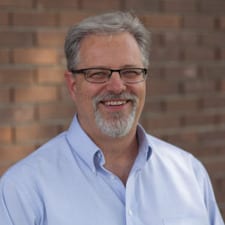
Scott Schwalbe as Co-Founder and CEO of NimbeLink, Scott has a long history of building profitable businesses and successful teams. In his role at NimbeLink, he is responsible for corporate vision, strategy, and the overall leadership of the company. Prior to founding NimbeLink in May of 2013, Scott held leadership roles for several industry-leading companies, including Logic PD, HDM, and Celestica. He also served and retired after 20 years in the U.S. Navy as a Cryptologic Linguist. He earned his BS at New York University and his MBA from Cardinal Stritch University.
